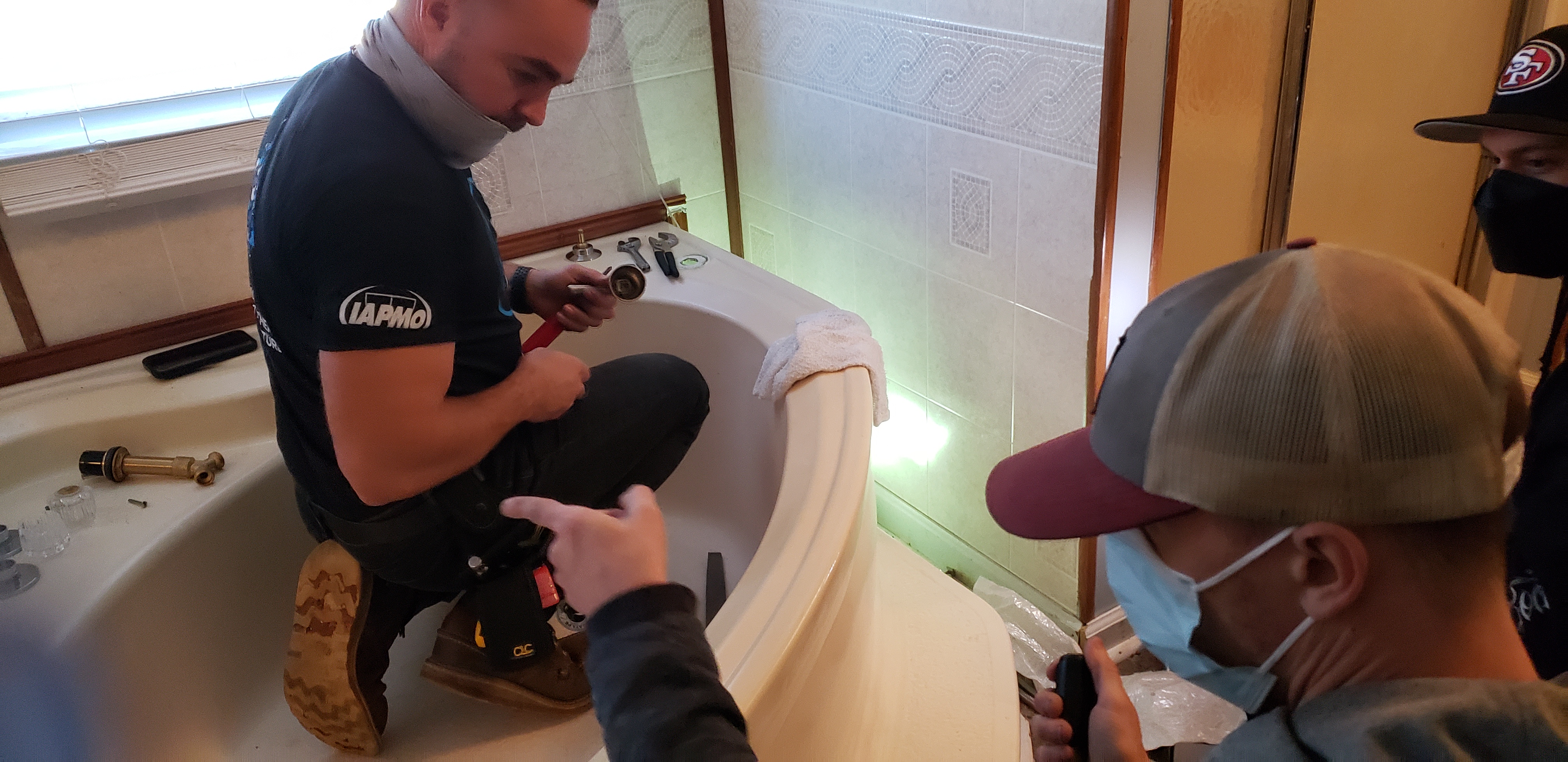
PANDEMIC-DELAYED COMMUNITY PLUMBING CHALLENGE DELIVERS AT LAST FOR LONG-NEGLECTED COMMUNITY
In the heart of America’s South, a deeply troubling reality is hidden, out of view in one of the poorest counties in the nation. In the “Black Belt” of Lowndes County, most people straight pipe their sewage into their back yards. Though knowing this puts them and their families at immense risk, what practical choice do they have? There is virtually no public wastewater infrastructure anywhere in Lowndes County. Black Belt soils, spanning east/west in the south-central part of the state, are highly productive from an agricultural standpoint yet incompatible with conventional septic type systems. On-site packaged or engineered systems are far beyond the reach of residents in one of the most economically challenged regions of this country. Out of sight and out of mind to the rest of America, this dirty secret has been allowed to fester for generations.
IWSH believes, “… clean water and sanitation are fundamental human rights…” and “… plumbing is vital to global health.”
In keeping with our vision, we made a scoping visit to Alabama as a first step, back in 2019. Many county residents were guarded and skeptical, having been misled, lied to, or even threatened by politicians and unscrupulous contractors. For decades, promises of help went unfulfilled, leaving many in perpetual fear their homes might be seized.
Home inspections revealed it was possible to address this situation by making calculated improvements on plumbing systems.
Reducing water consumption dramatically lowers the volume of sewage created. This, in turn, makes it easier to deal with, opening the door to other methods of treatment and management.
Charismatic and energetic Sherry Bradley, together with Perman Hardy, an enthusiastic, engaging community activist, introduced us to homeowners. As if her full-time day job directing Alabama’s Department of Public Health (ADPH), Bureau of Environmental Services isn’t enough, Bradley heads the Black Belt Unincorporated Wastewater Program (BBUWP), a nonprofit focused on “… improving community health one family at a time …” Many Lowndes County residents were reluctant to register for BBUWP assistance due to the misrepresentations perpetrated by opponents of BBUWP’s vision. It is a mystery to me how anyone can oppose safe water and adequate sanitation for all.
We also met Dr. Kevin White, University of South Alabama (USA), who for many years devoted research and development efforts toward innovative solutions to deal with sewage. Vegetated wetlands, creatively designed lateral transpiration mounds, and other solutions have been tried and monitored at the USA campus and in actual field conditions at home sites in the South. White and his grad students carefully monitor and document effluent quality in hopes of finding creative alternatives to conventional sewage disposal systems.
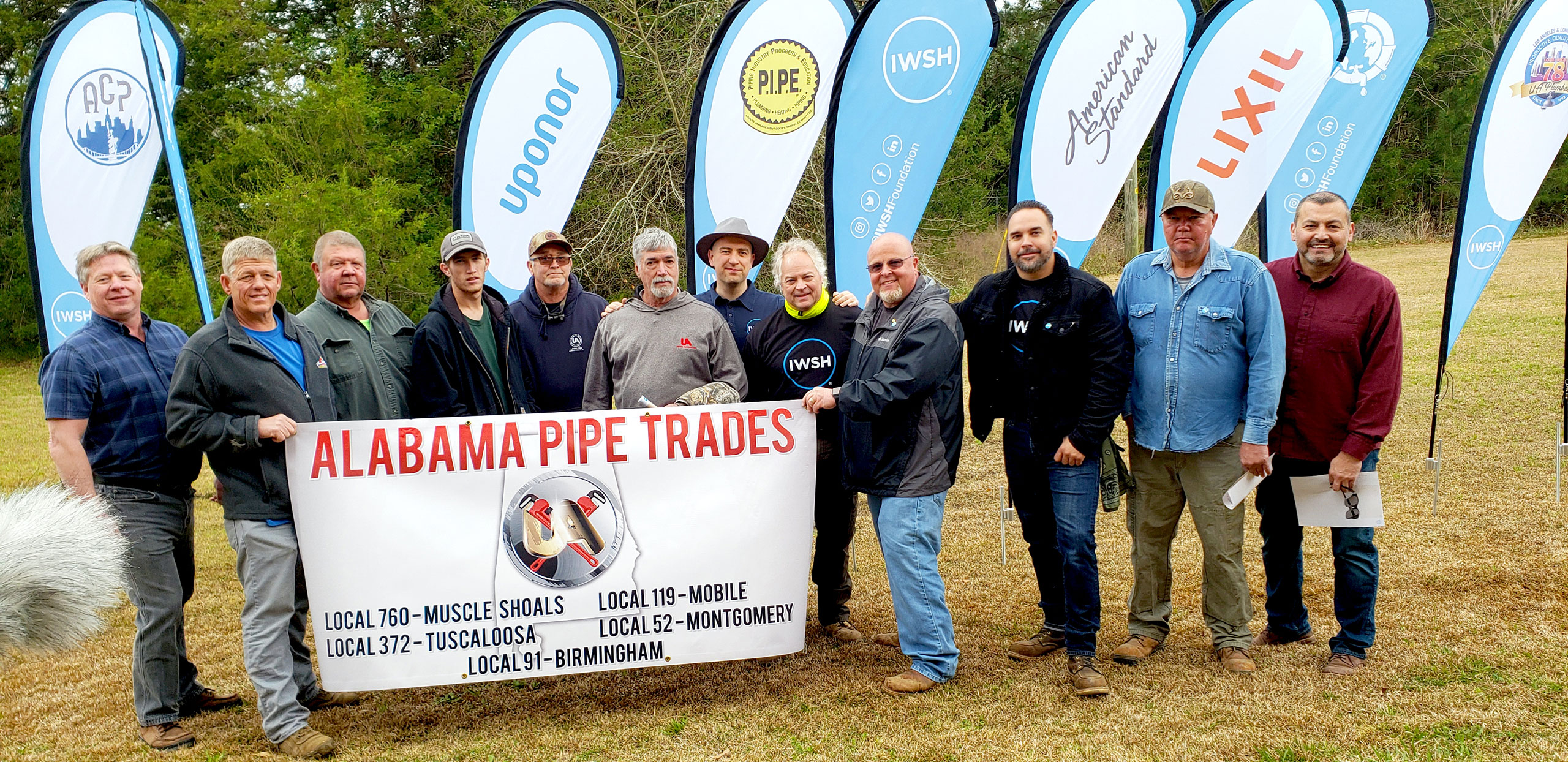
IWSH surveyed 14 homes, from which five were selected for a Community Plumbing Challenge (CPC). Harrison Haigood of Brownsville Partnership (Brooklyn, New York) facilitated Housing for Health surveys in the selected homes. The survey was developed by HealtHabitat and is used extensively in Australia to address needs in Aboriginal communities there. (We used a scaled version of it in previous CPC efforts in Navajo Nation.) The goal of these evaluations is to go through the home, observe various elements for healthy living, then promptly rectify any deficiency noted.
Specific plumbing needs were identified and documented. Material lists, manpower needs, and a site-specific plan was fleshed out.
Our flagship CPC cannot be accomplished without strong partnerships. LIXIL, parent company of well-known American Standard Brands, donated high-efficiency plumbing fixtures — faucets, shower heads, toilets — to the cause. Taka Idota, Mike Webster and Troy Benavidez were instrumental and on site for initial site visits and during the CPC.
Ferguson Supply donated tools, consumables, pipe, fittings, and other items necessary to our tasks. Greg Teel, general manager of the Montgomery, Alabama, branch, was so kind and generous with his time and support.
United Association of Plumbers and Steam- fitters (UA) local unions provided licensed plumbers and apprentices to install plumbing upgrades. Fuji Clean USA donated packaged wastewater systems.
Each IWSH CPC takes on its own identity, reflecting the individual character of the local community, volunteers, and homeowners served where it takes place. It is life-changing to become part of making a meaningful difference in this way. Everyone involved emerges from a CPC with new perspectives.
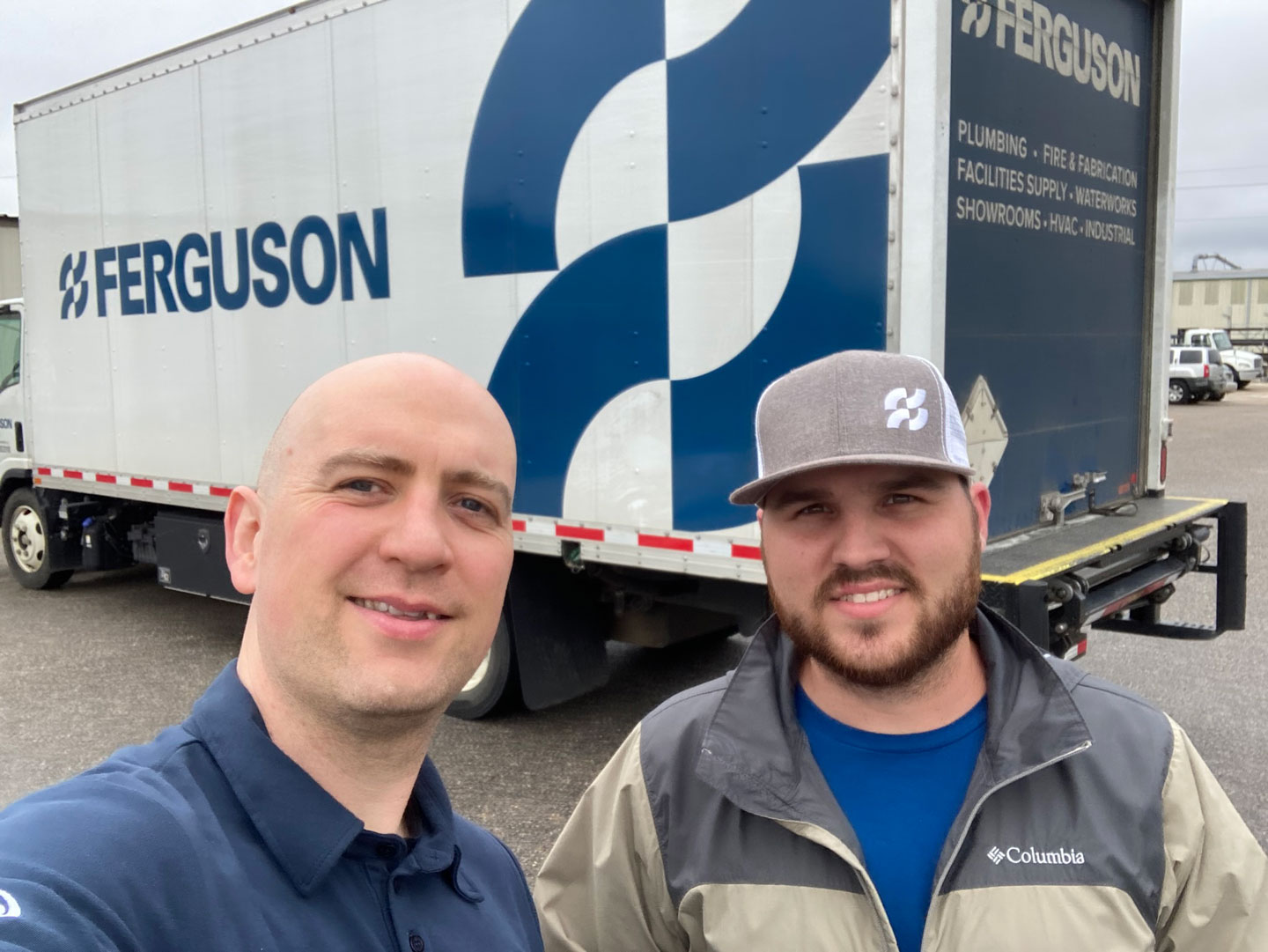
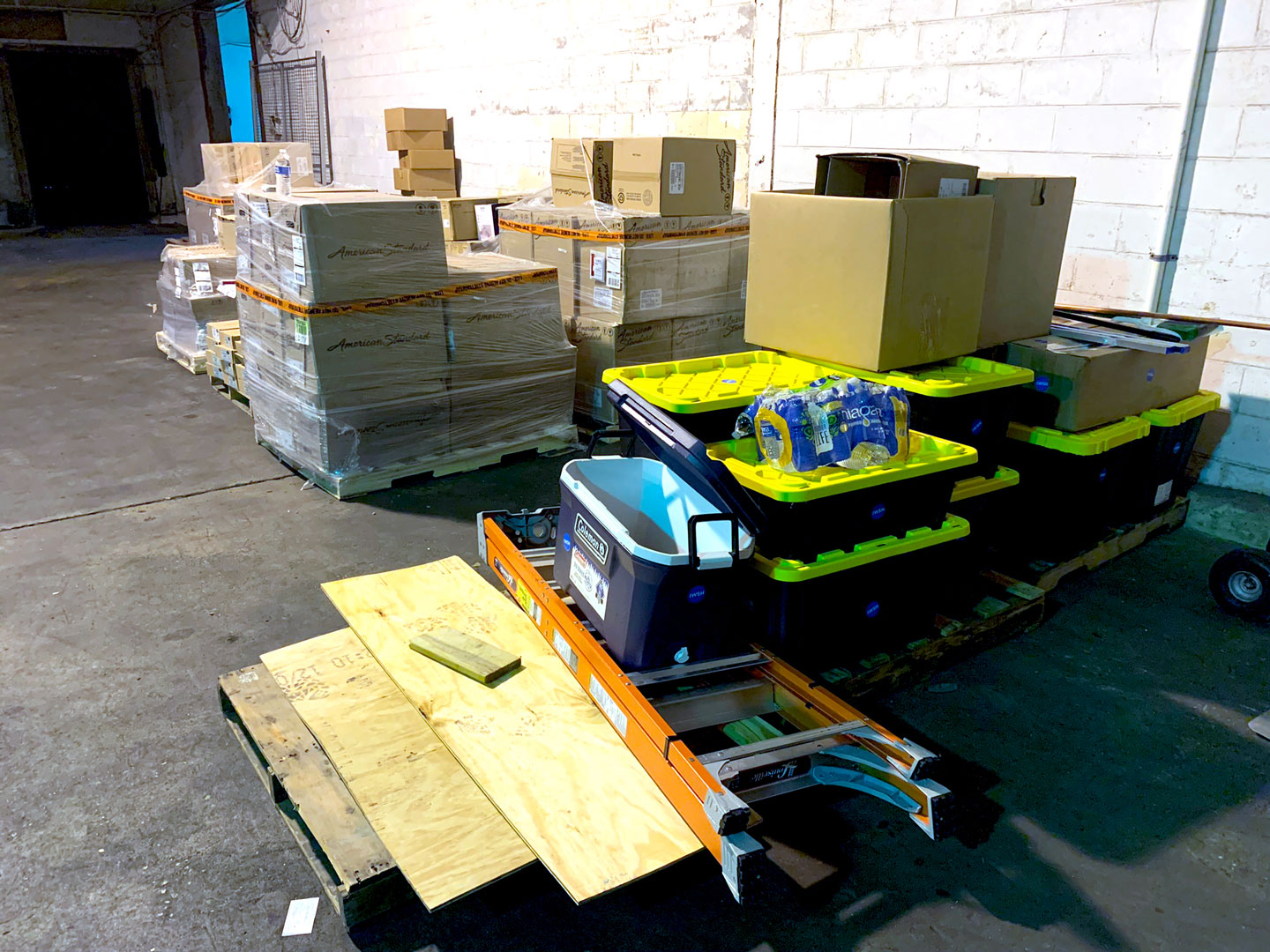
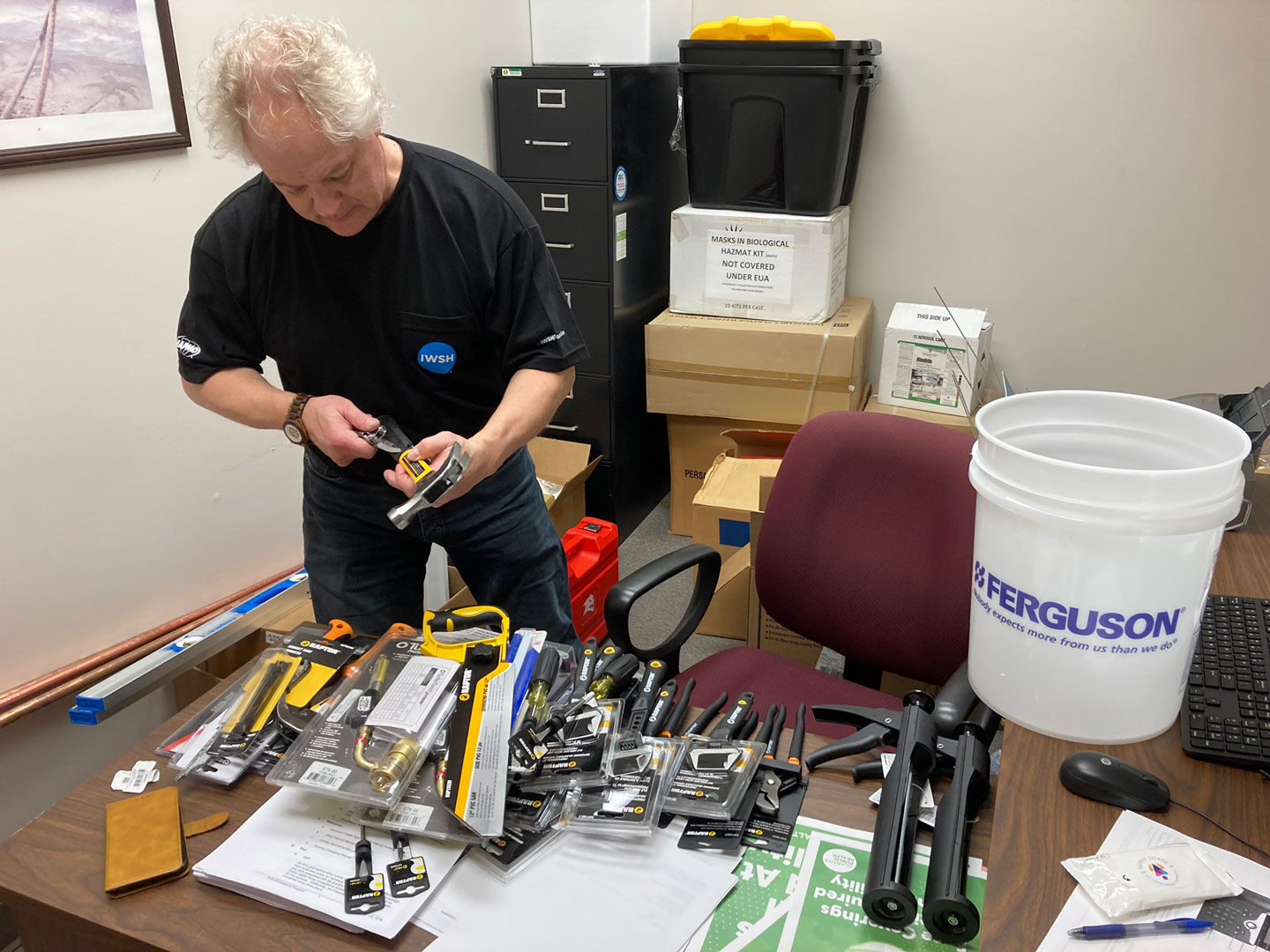
Initially, getting plumber volunteers was a challenge. Nobody knew what they might be signing up for or getting themselves into, thus they were reluctant. Those feelings disappeared quickly during our orientation the evening before the actual work started. Meeting Bradley and Hardy, hearing their stories, seeing their passion, broke the ice. By early Monday, shortly after work commenced in two homes, it is safe to say plumbers’ doubts or fears became a fleeting memory. Members of UA local unions 52 (Montgomery), 91 (Birmingham), 372 (Tuscaloosa) and 760 (Muscle Shoals), as well as a representative of UA South Central Pipe Trades (serving Alabama, Louisiana, Mississippi, and Arkansas), all participated.
John Paul Smith, business manager of UA Local 52, was an incredible host. Always helpful and gracious, he recruited several volunteers, including apprentices, picked up supplies and worked on repairs. The skillset of every volunteer was on full display, each tackling their assignments professionally and with gusto. As with any such project, unforeseen issues arose, demanding immediate attention. Business managers and training directors from all Alabama locals, as well as Alabama State Pipe Trades, were totally supportive of their members’ involvement.
IWSH operates by creeds such as “Under promise, over deliver” and “Good enough is not good enough.” To see the expressions of gratitude and joy on the faces of homeowners was emotional. There was no hiding their feelings as, perhaps for the first time, promises made were promises kept; our CPC addressed pressing, desperate needs in their houses. We corrected safety concerns such as kinked, trapped, or non-existent water heater relief valve drains. Leaks in plumbing drains and defective faucets were repaired or replaced entirely. New high efficiency plumbing fixtures installed were functional as well as beautiful. In one home, an old, round-bowl standard toilet was replaced with an elongated, comfort-height toilet. The next day, the homeowner whispered to me that she thought this was the greatest thing ever, using it was so much easier. Only our best will do as we serve others.
If we lose sight of “human” in humanitarian efforts, we fail dismally in our mission.
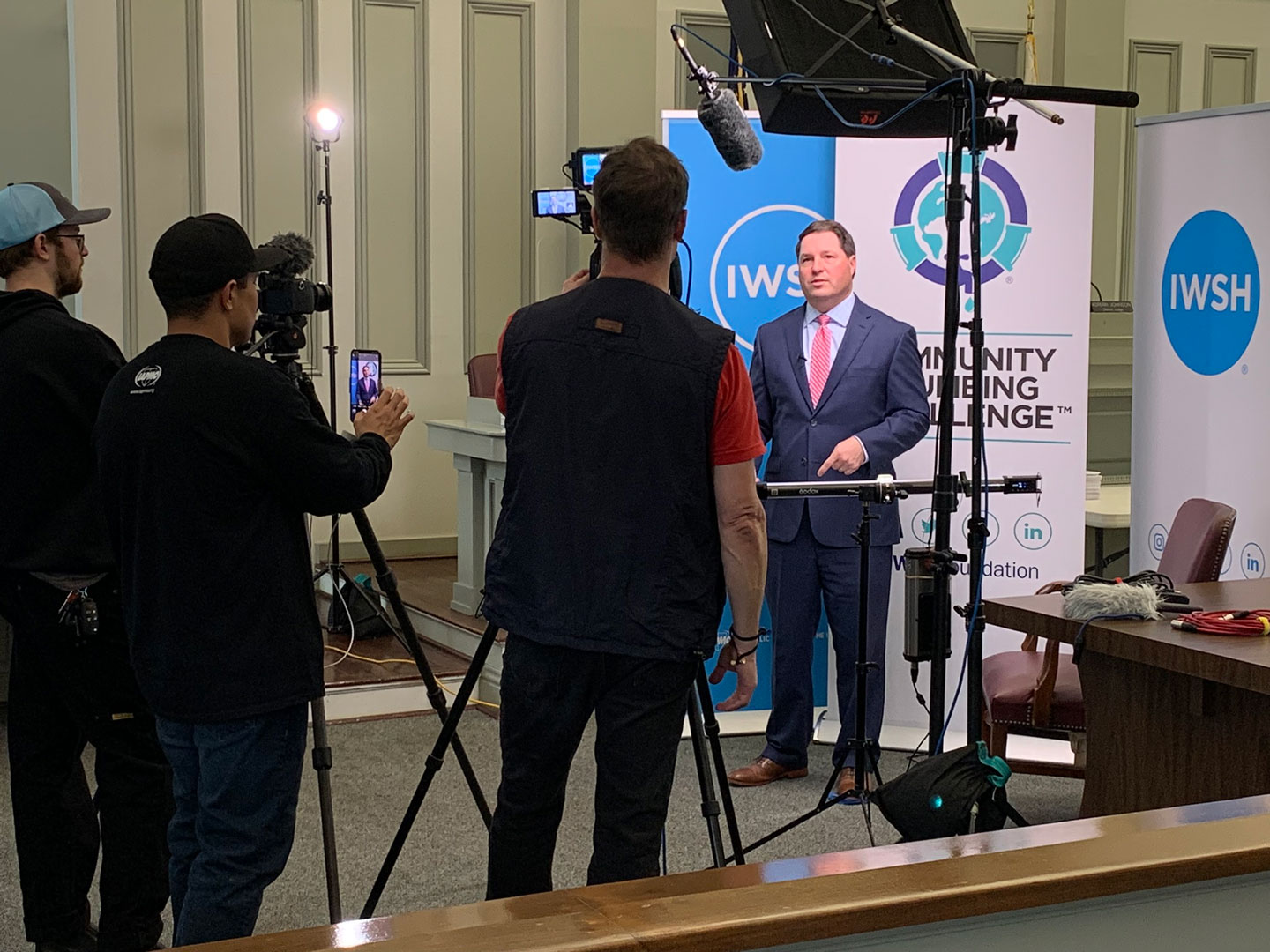
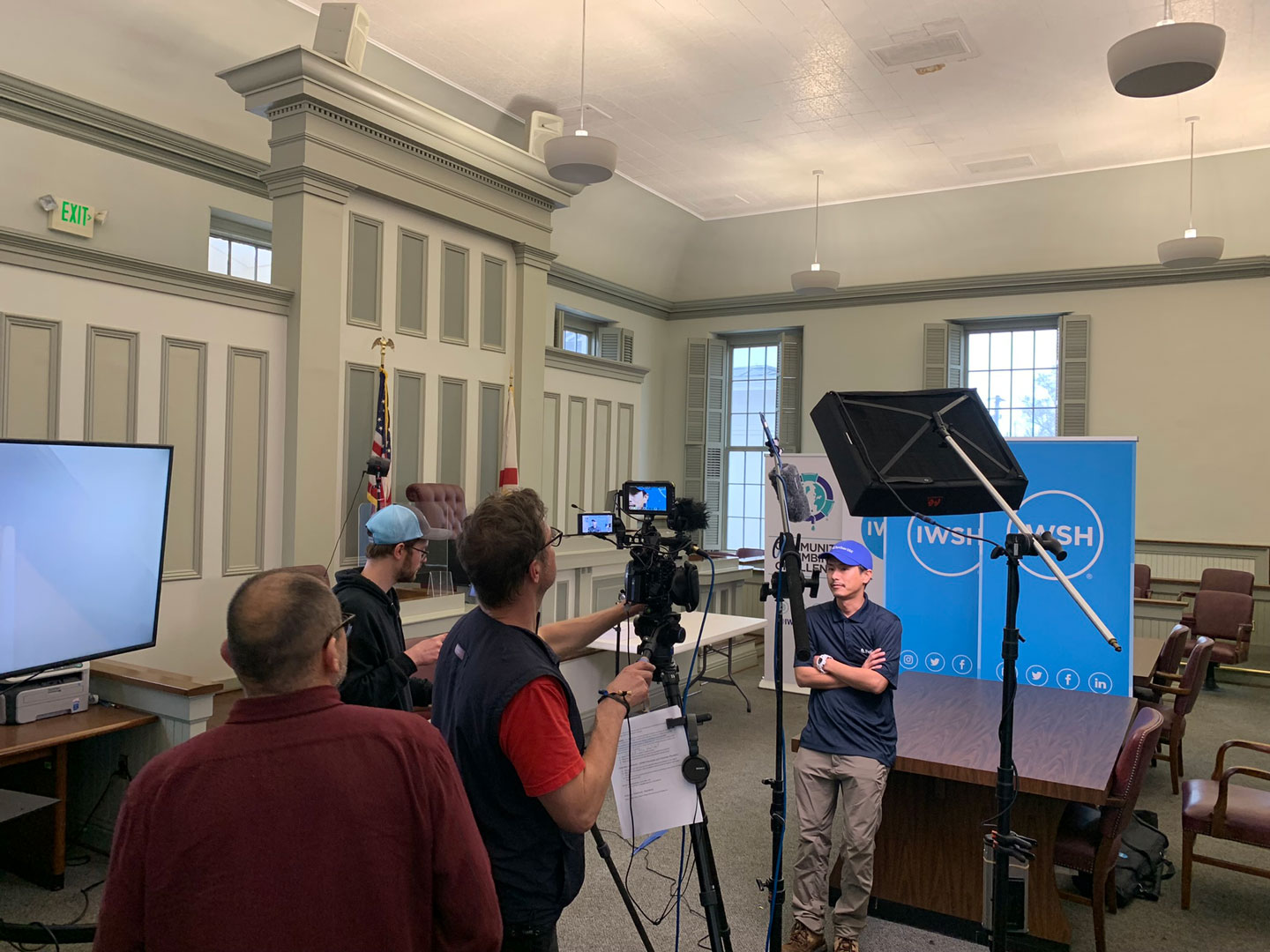
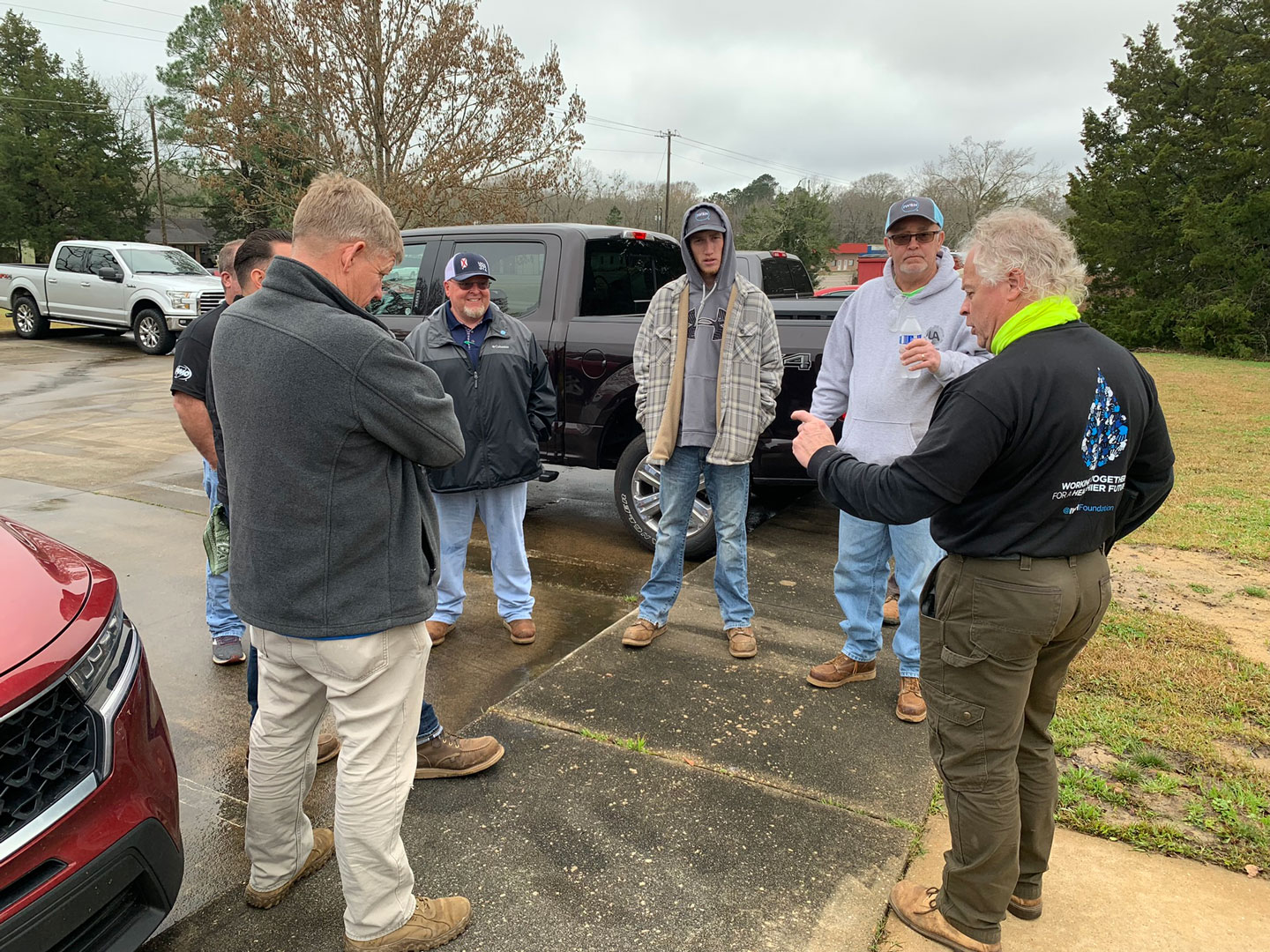
As with any CPC, IWSH fully complies with and adheres to local regulations in place.
Michael Lavoie, a veteran of other CPC efforts, and I both obtained Alabama Master Plumber licenses in order to oversee our project. This met with the obvious delight and full approval of Jimmy Morgan, who oversees Alabama Plumbers and Gas Fitters Examining Board. He candidly stated that all too often others coming in from out of state flout their rules/laws, even if they may be well-intentioned.
Billy Smith, executive director/CEO of the American Society of Plumbing Engineers (ASPE), and Carol Johnson, society president, joined us to see firsthand what a CPC entails. During the day, they went to various home sites and met volunteers and homeowners to get a fuller appreciation. Their remarks at lunch clearly demonstrated the day’s events resonated deeply with them and made an enduring impact.
Wednesday, a “town hall meeting” was convened at the courthouse in Hayneville. Bradley shared in detail what the BBUWP program was all about. Seán Kearney, IWSH managing director, explained who IWSH is, and I talked about what we were doing from a more technical perspective. White was profoundly moved and thankful for IWSH to tackle a CPC in his state. Even the judge commented that what was happening in his county was remarkable, and at once, oh so necessary. Some 60 persons were in attendance, as well as several local media outlets to capture the proceedings.
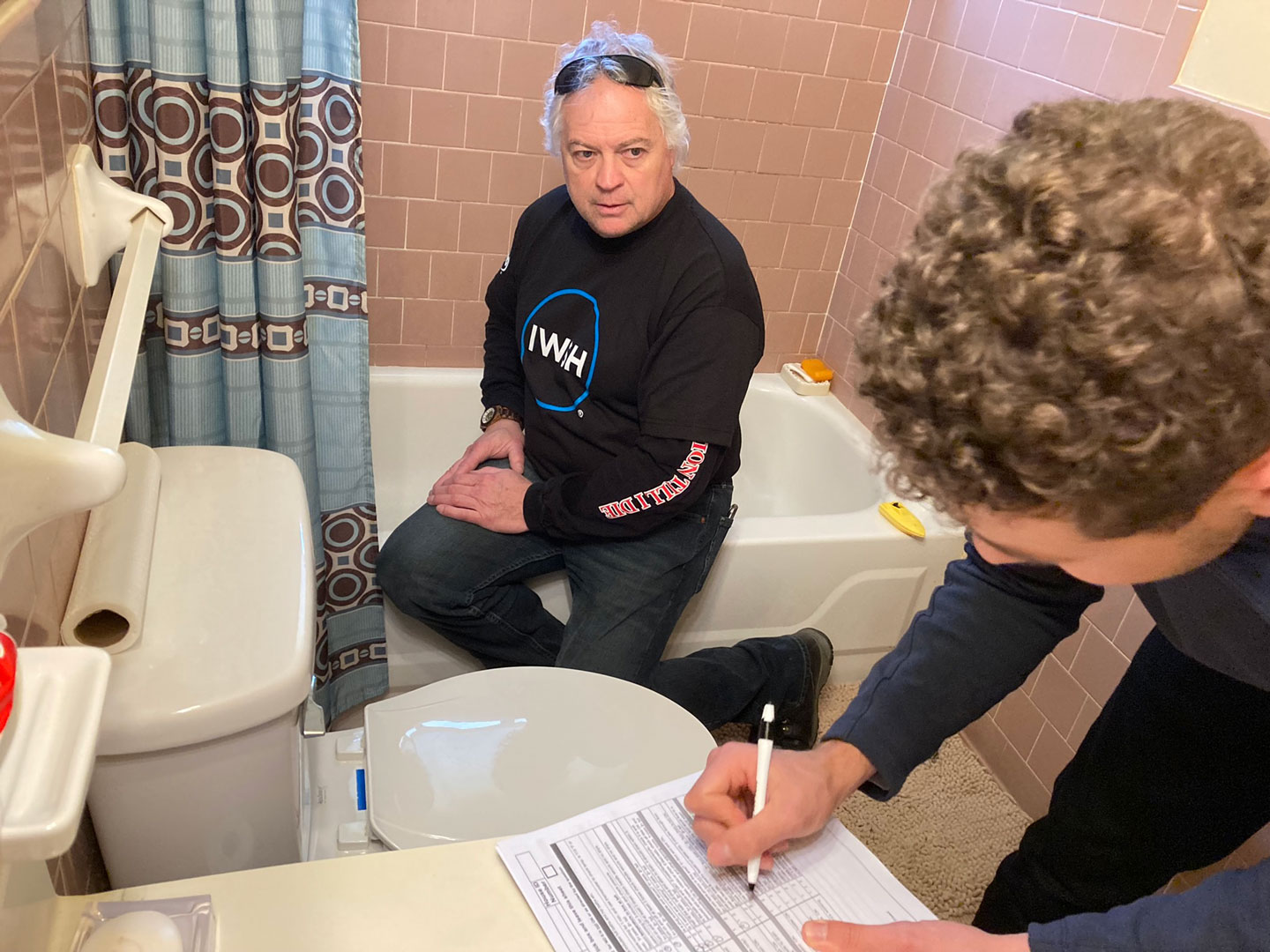
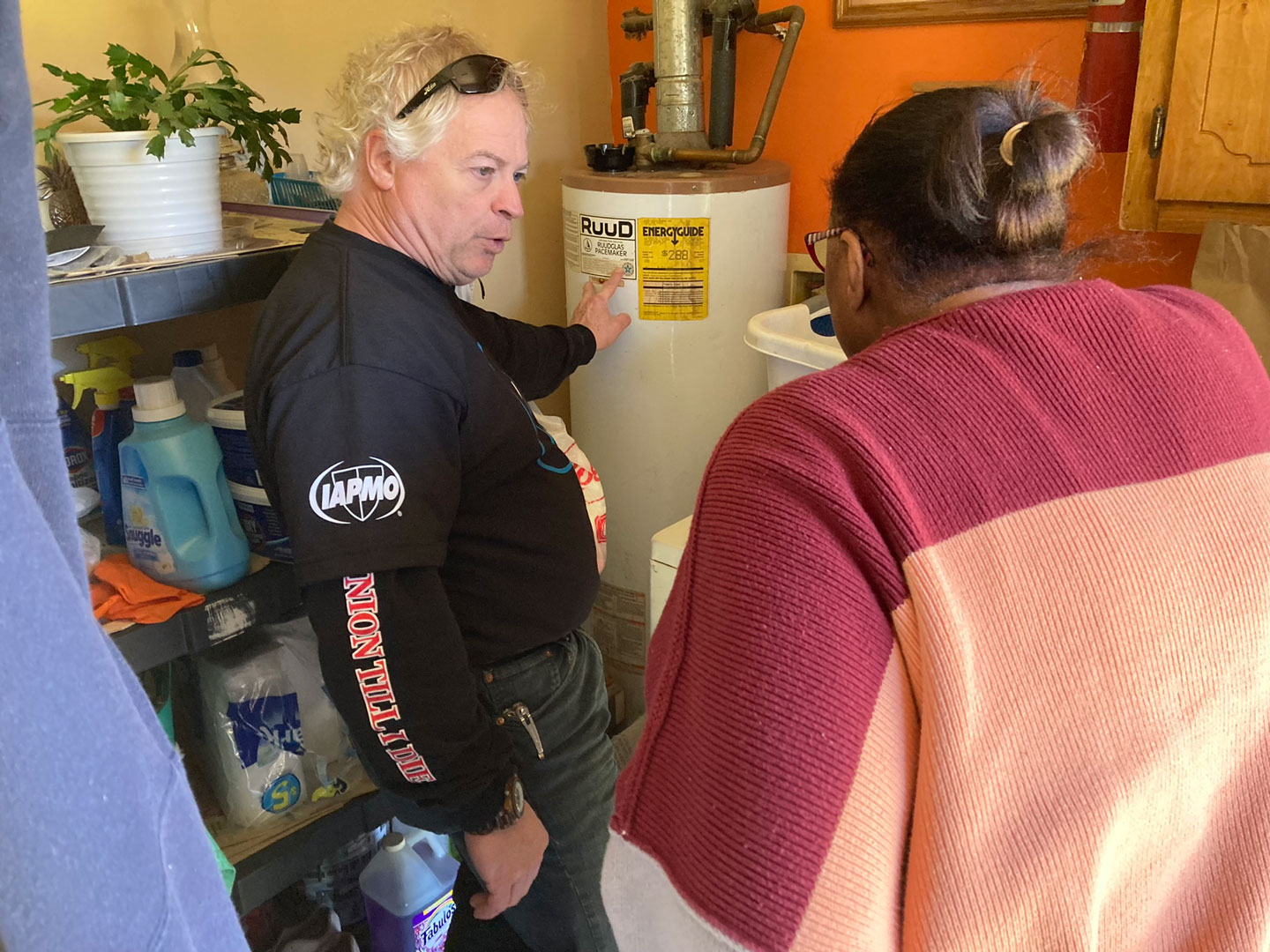
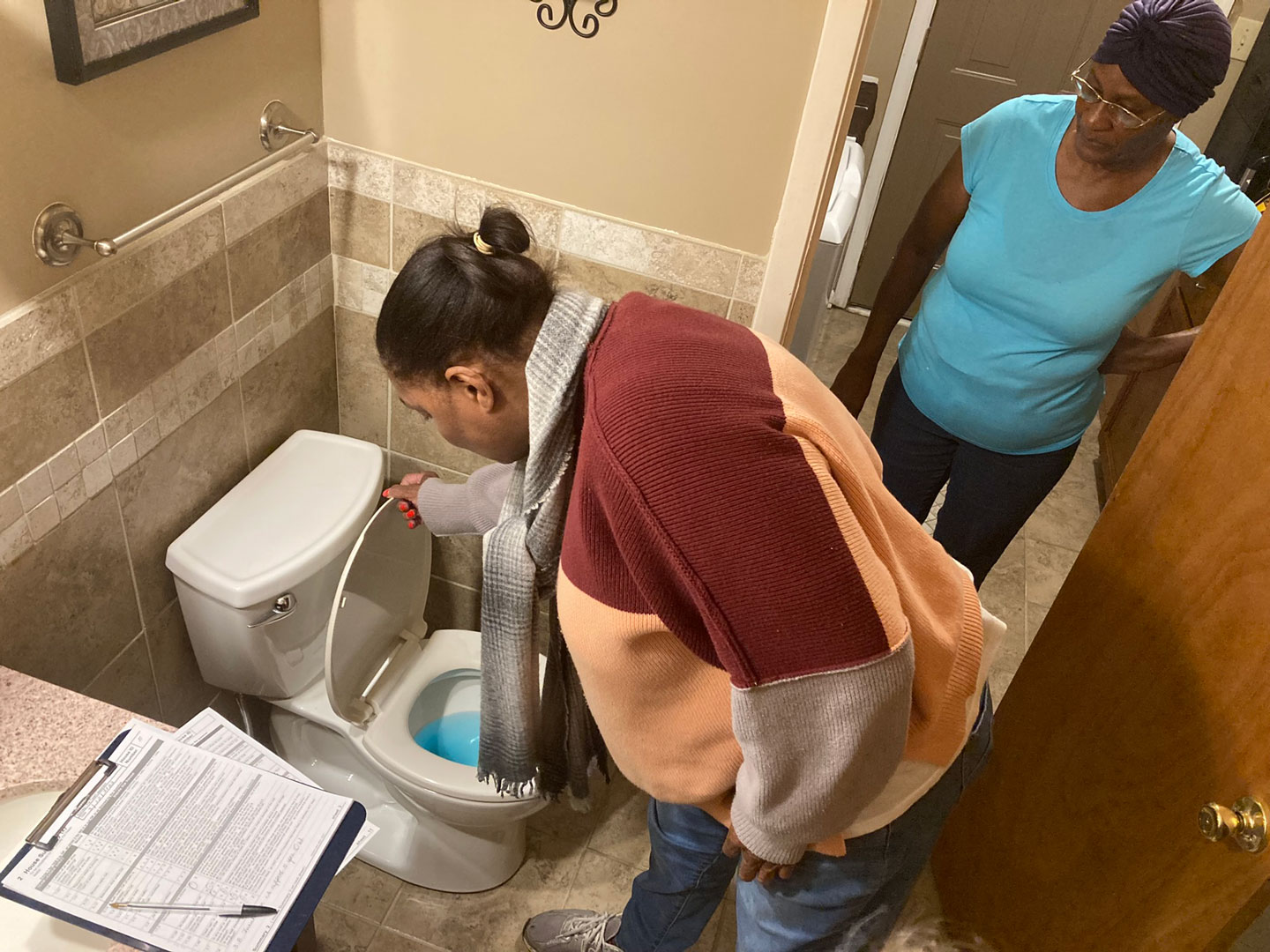
Gordon looks on.
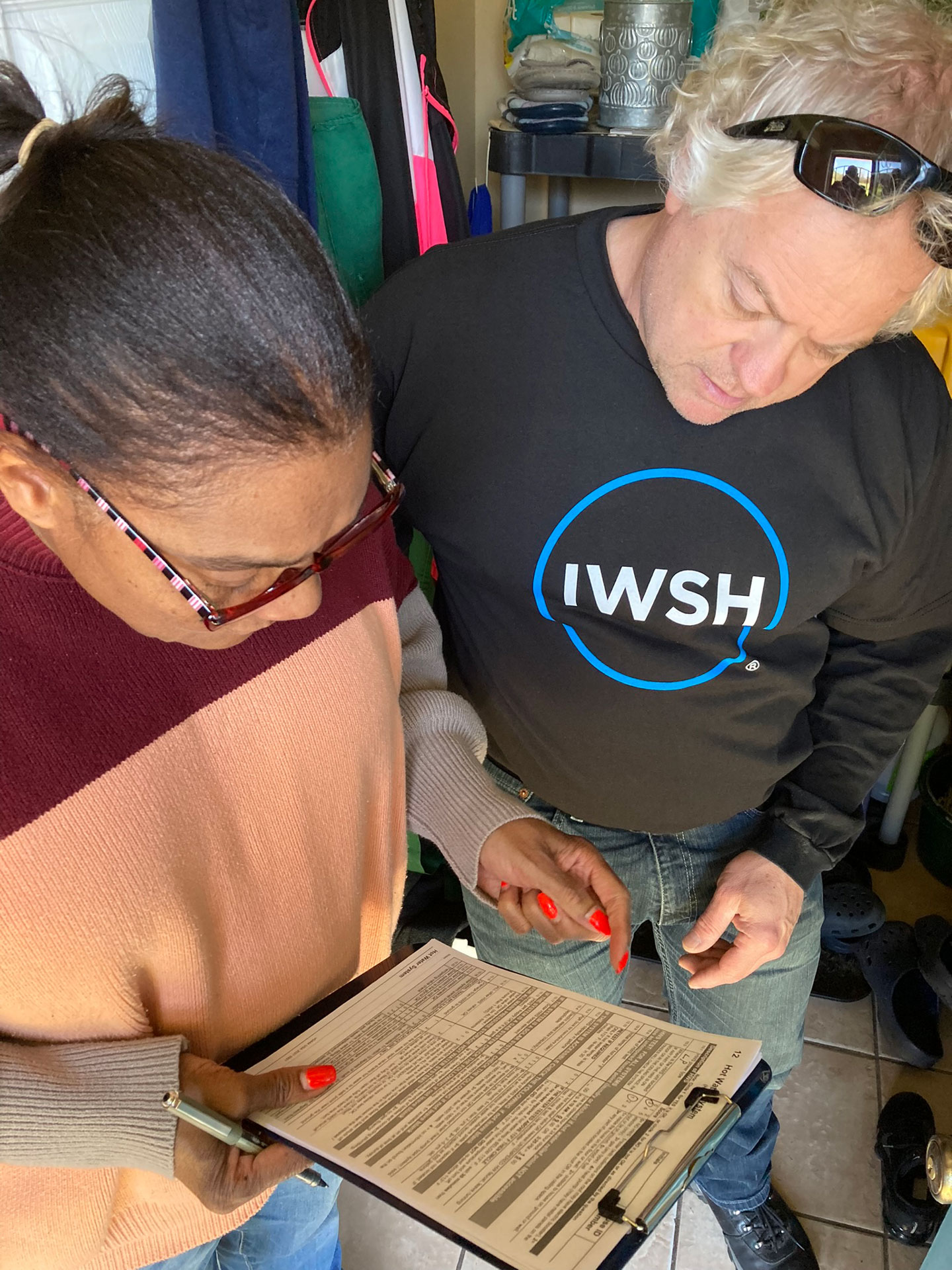
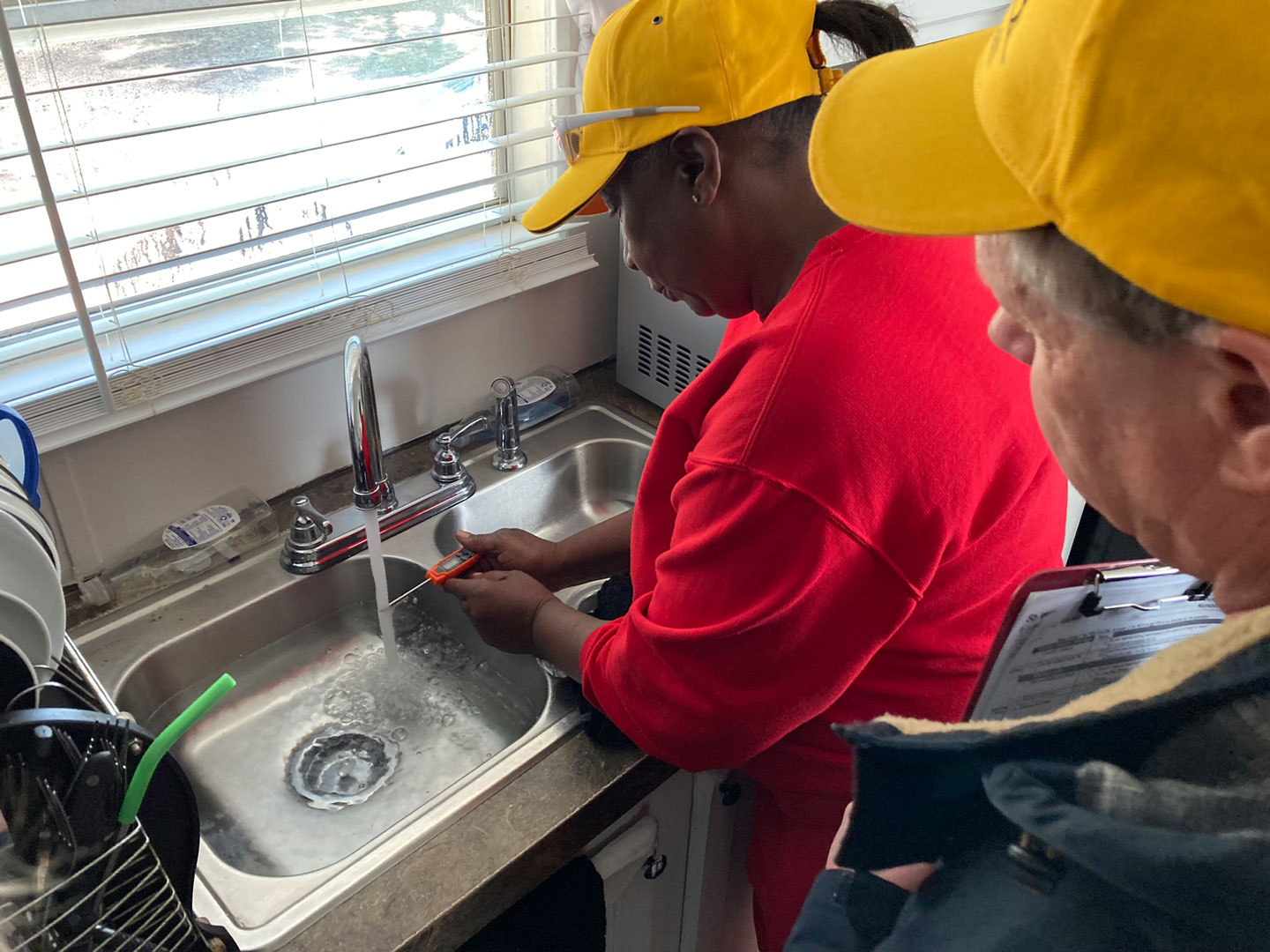
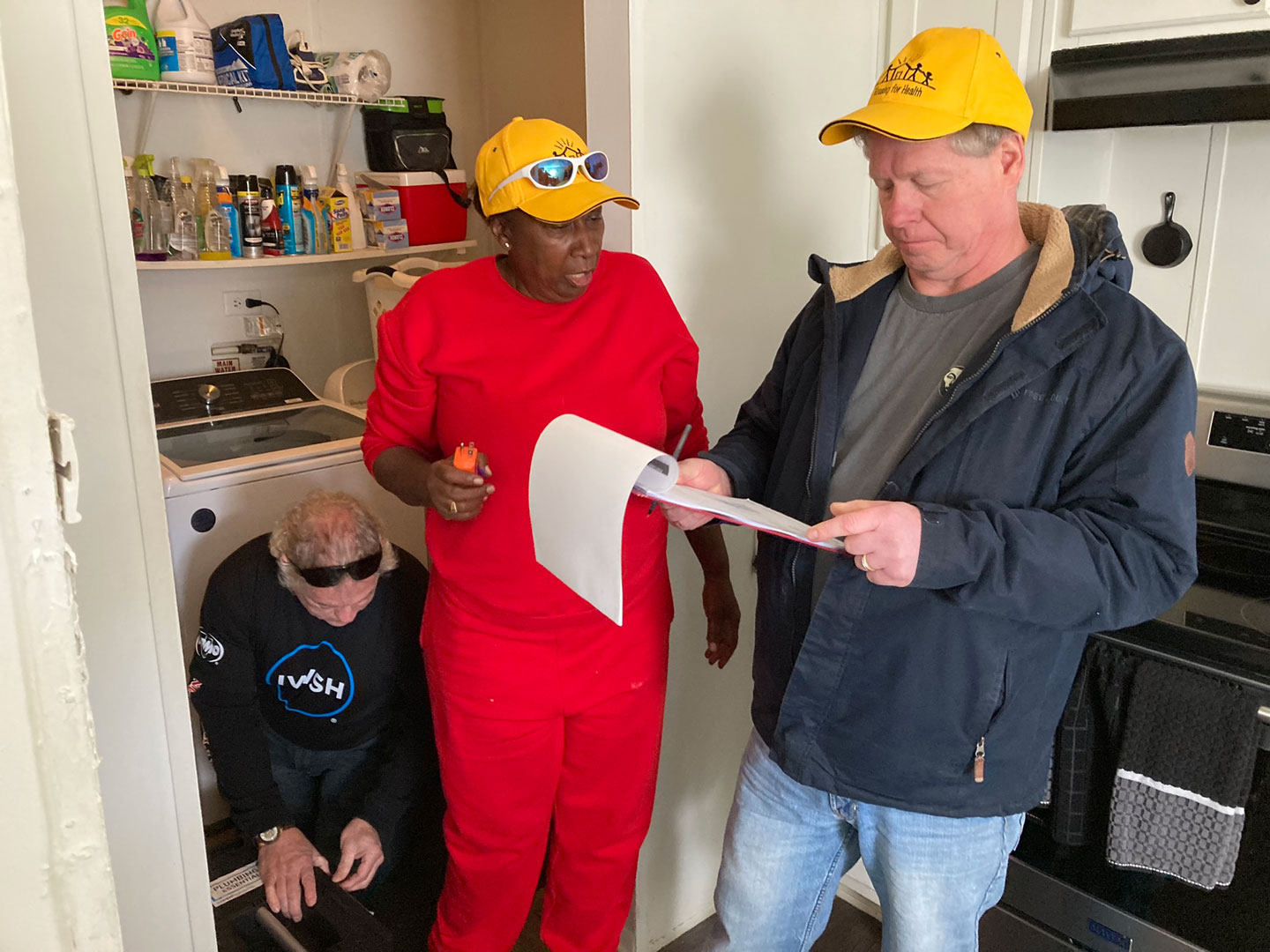
Following our talks and a question-and-answer period, many of the myths surrounding the BBUWP program were completely dispelled. As a result, many came forward to take applications. In the days following, Bradley informed us it was like floodgates were opened and BBUWP was deluged with requests for applications!
Without exception, the five homeowners felt the genuine concern of an innumerable and vast network of persons who care about the IWSH mission and cause. They may only have seen the volunteers who descended upon their houses to make repairs, yet behind those volunteers stands a vast network of IWSH partners, donors, family members and others that cared to give, join, participate in various ways that all contribute to bringing solutions to a situation in Lowndes County that has been unresolved for generations.
Bradley and Hardy received encouragement to stay their course and to continue to fight the good fight until everyone in Lowndes County has safe, sanitary plumbing where they live. There remains much to do, however now a framework exists to perpetuate the energy created by our first CPC in Alabama. Plumbing is essential — this is why we do what we do!
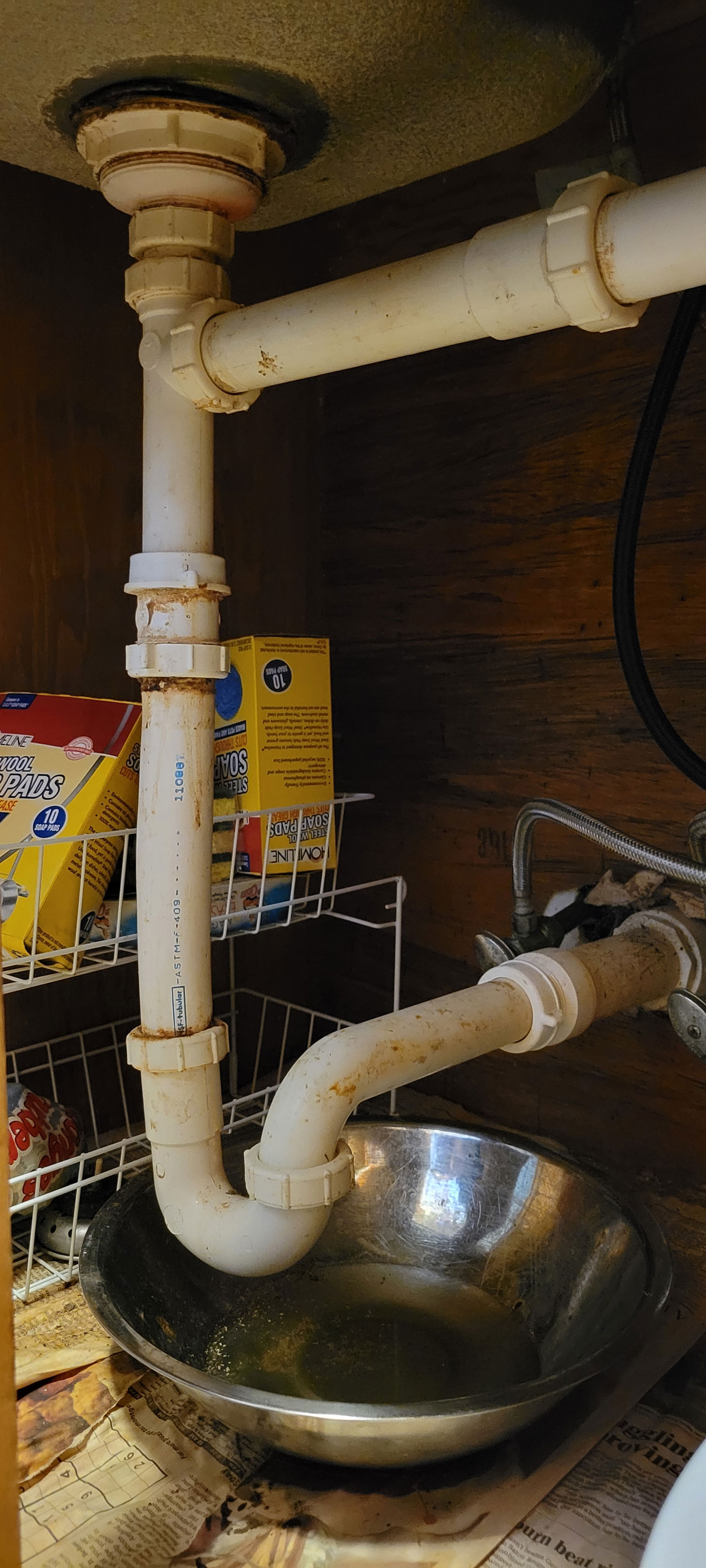
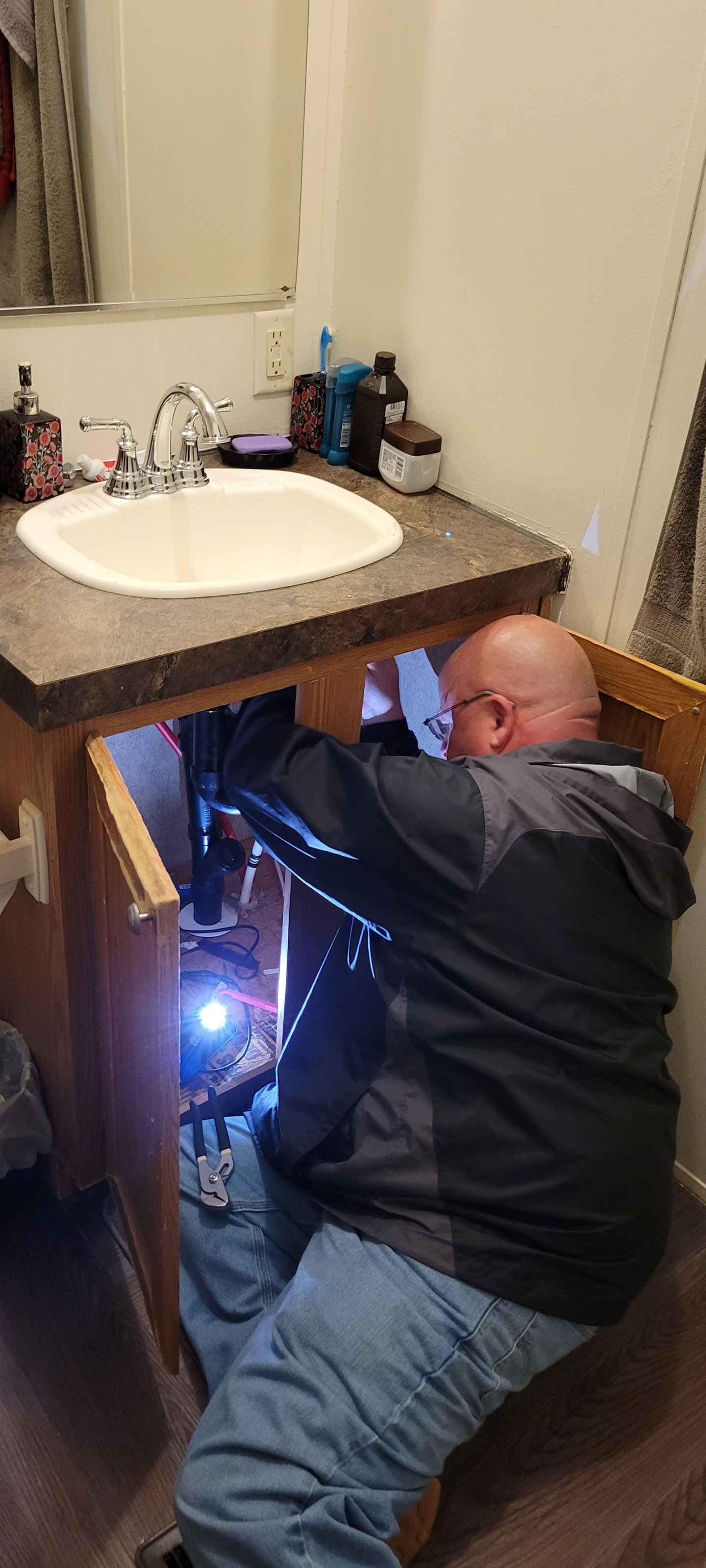
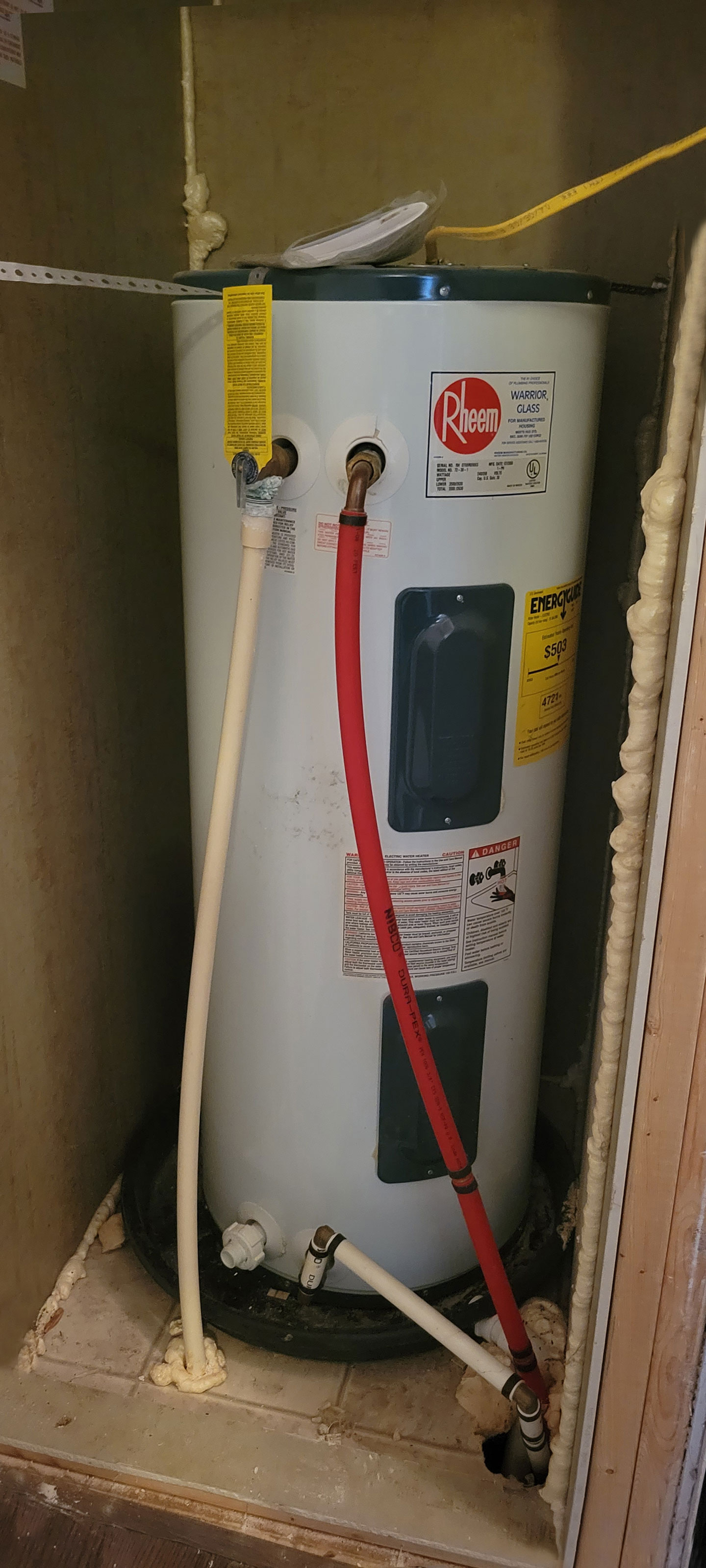
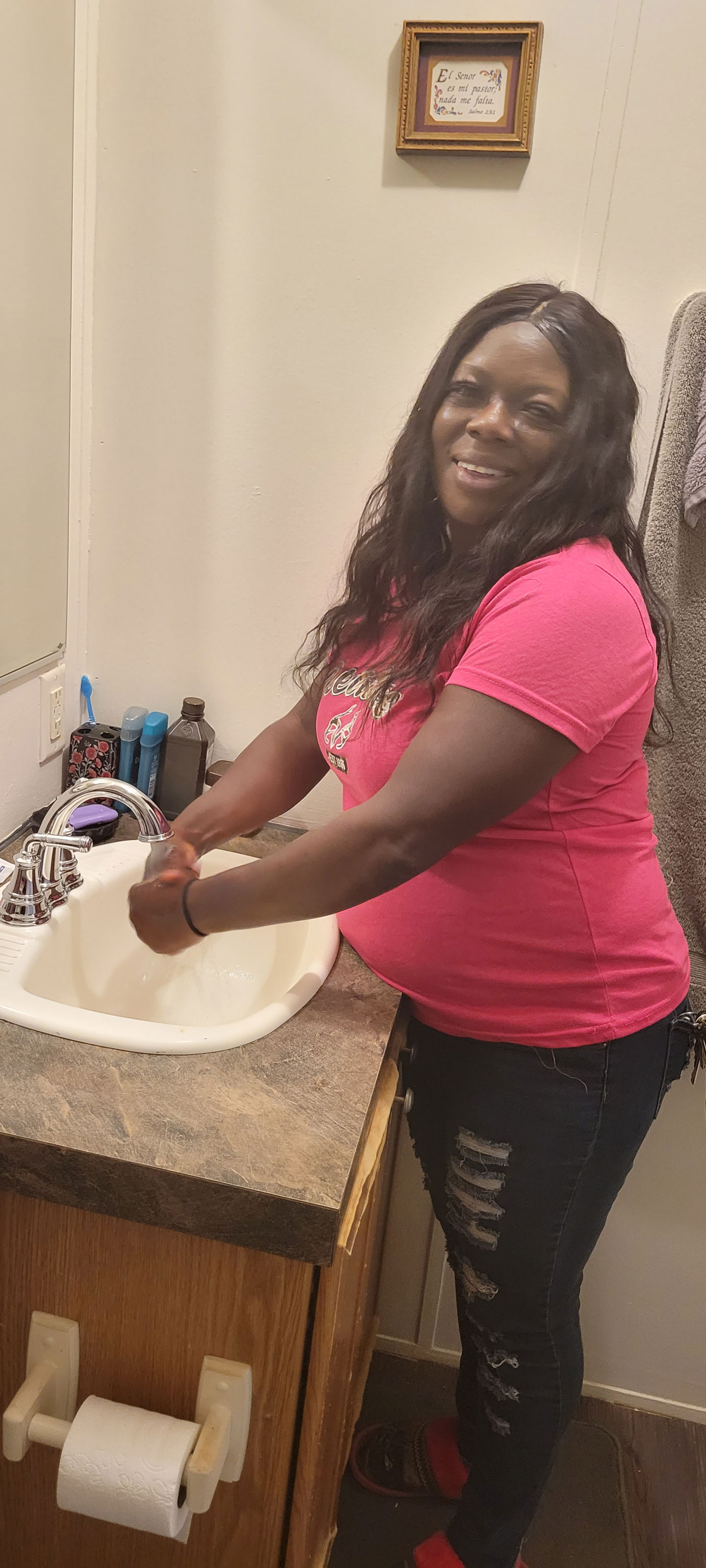
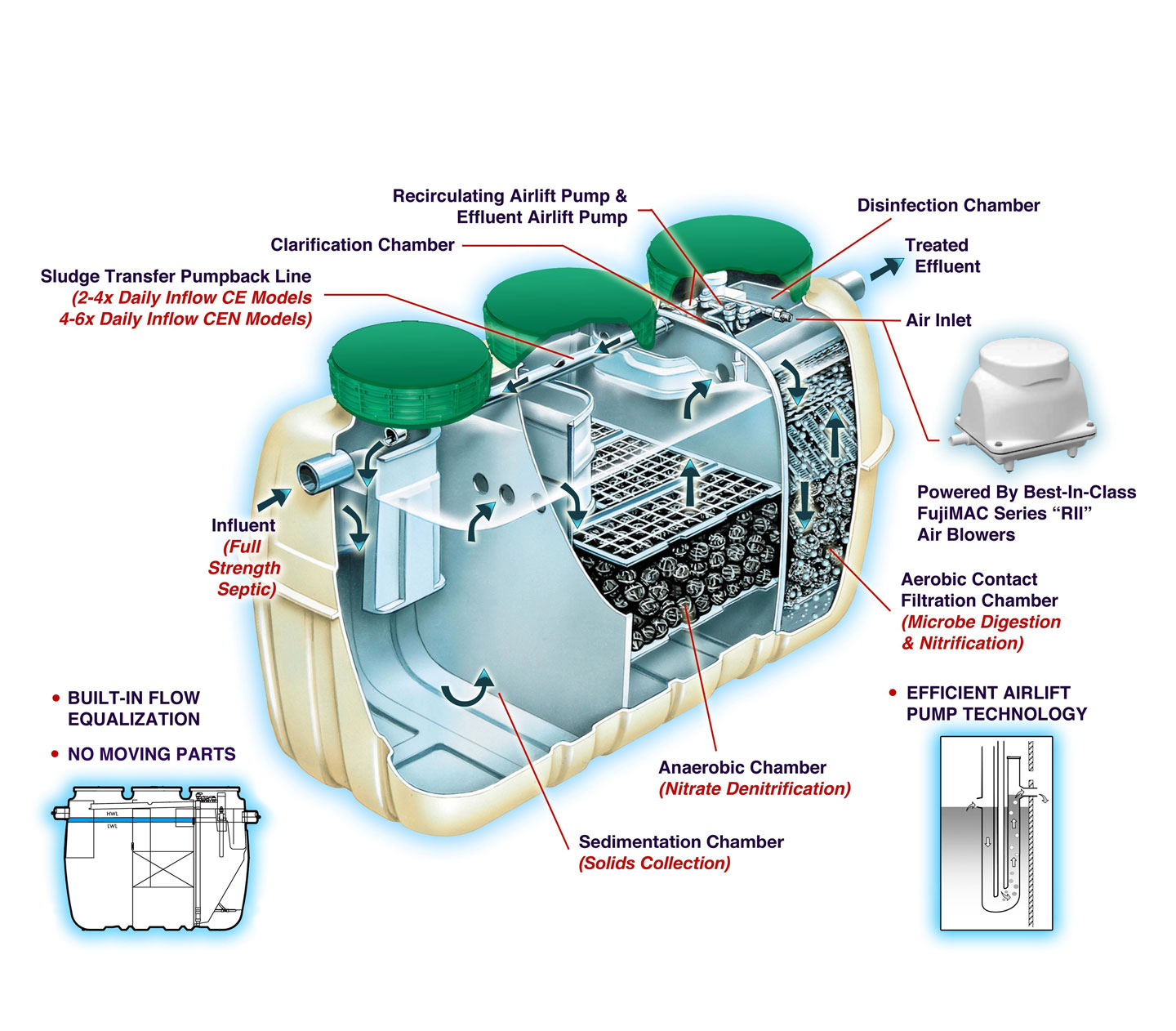
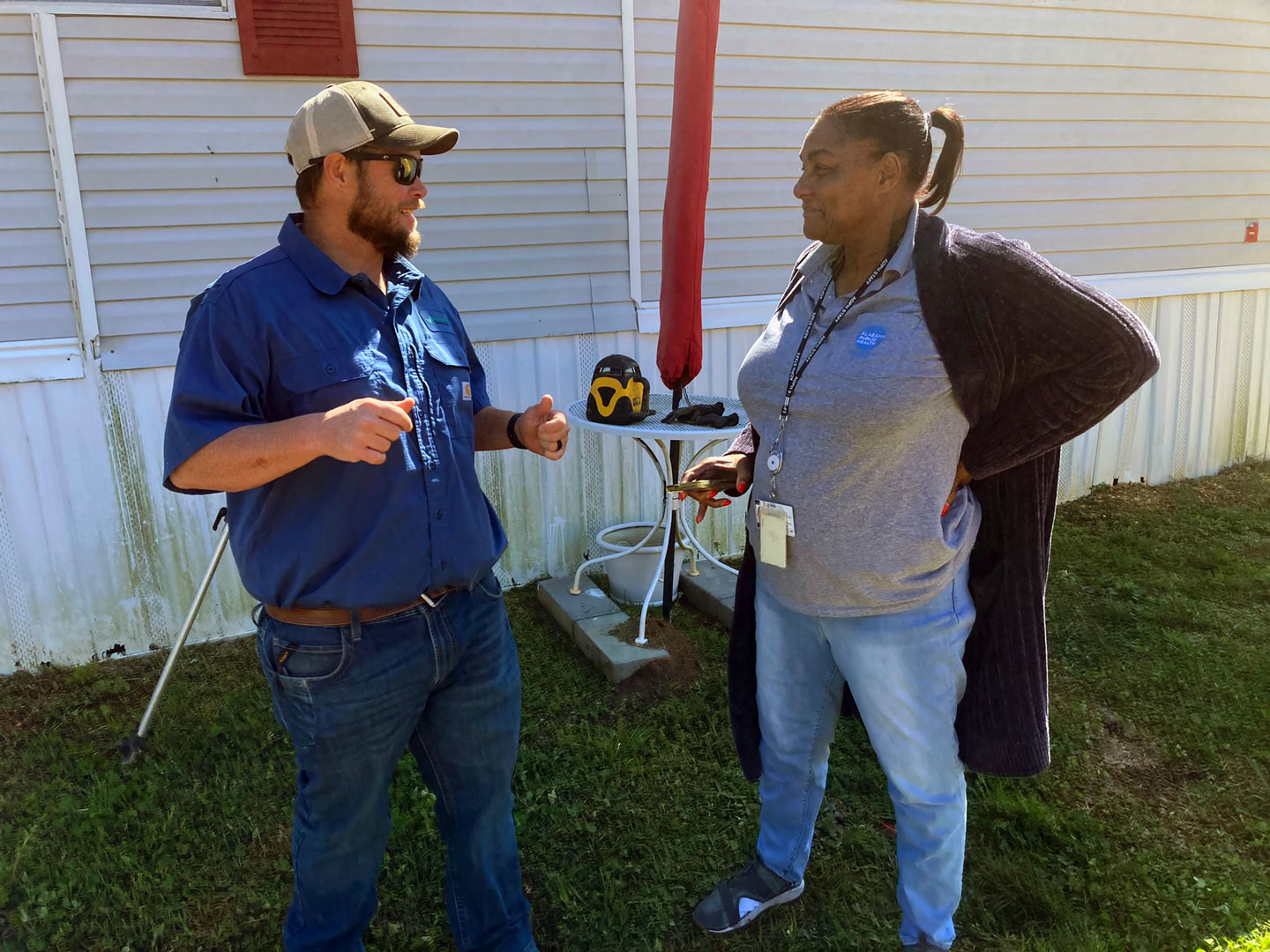
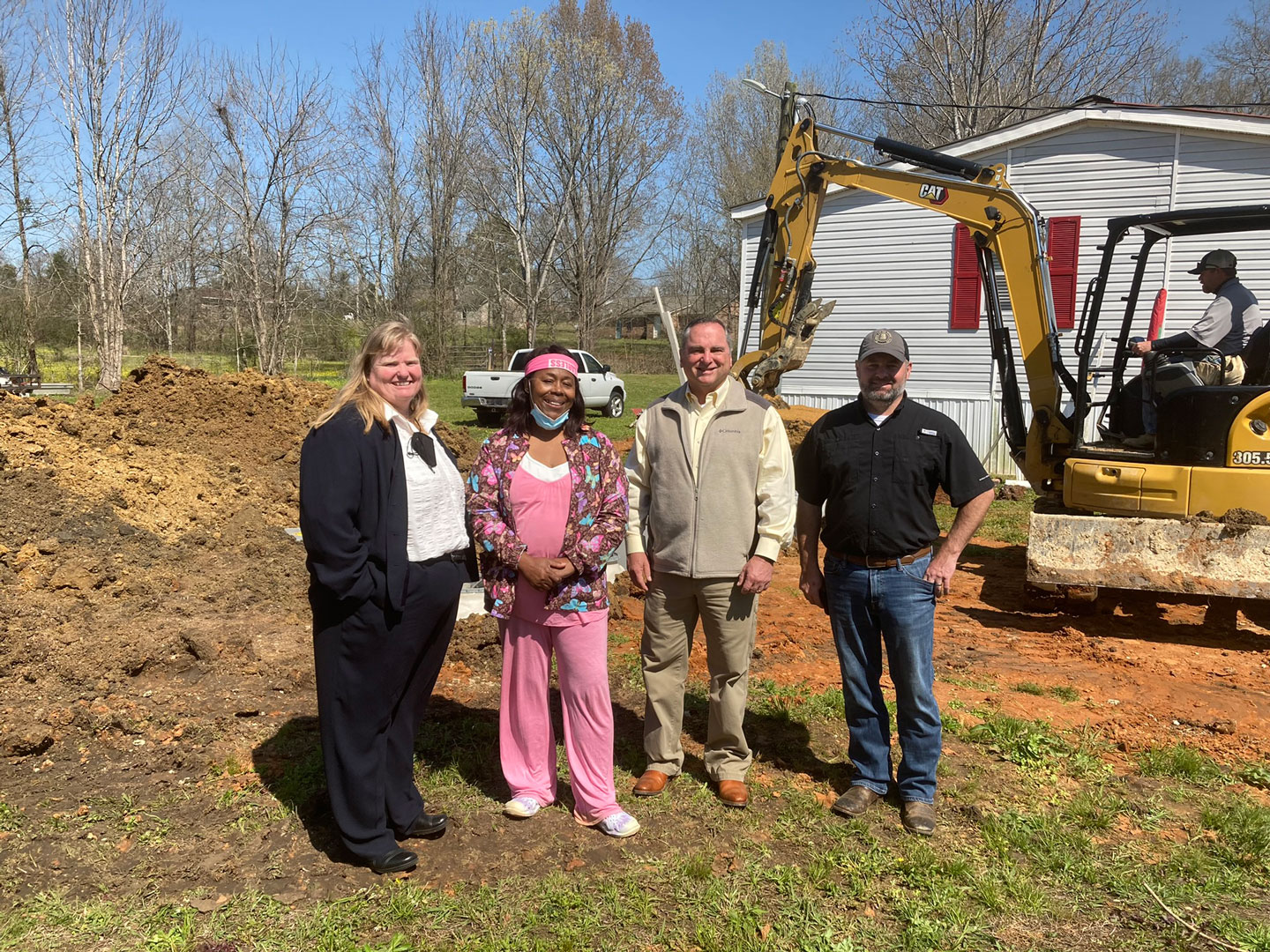
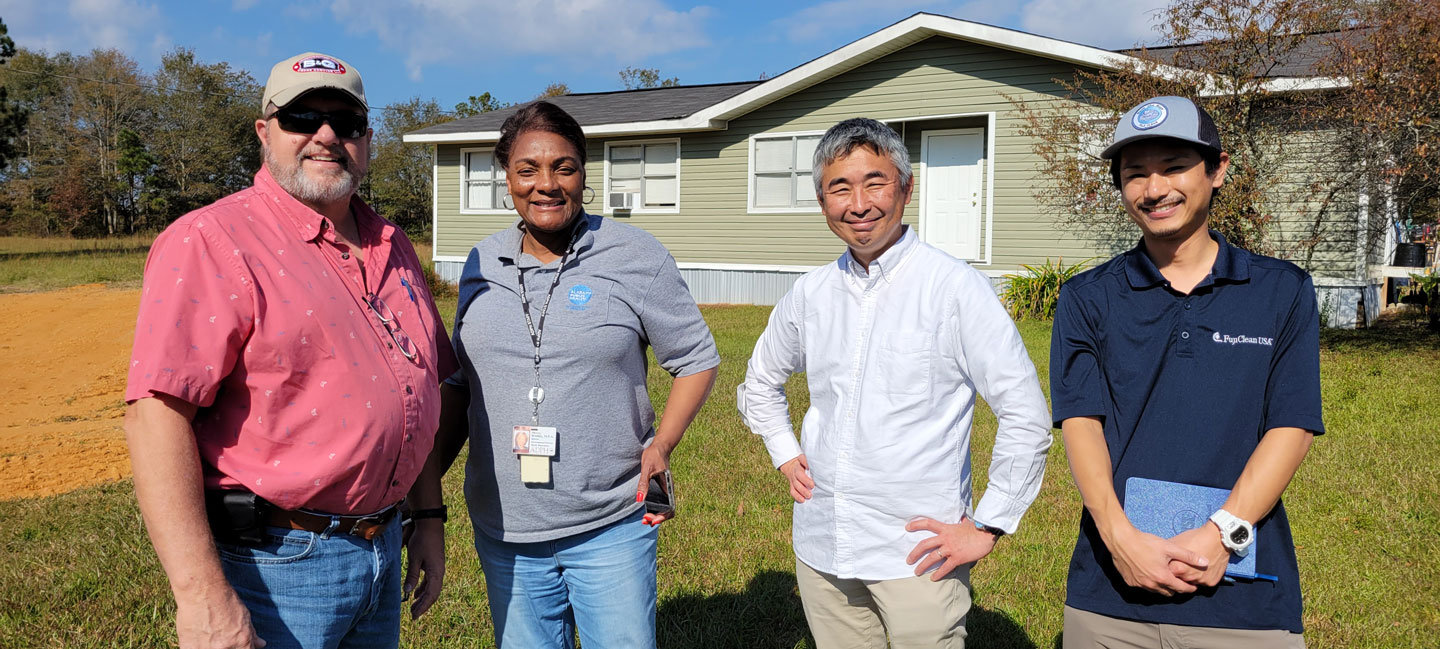
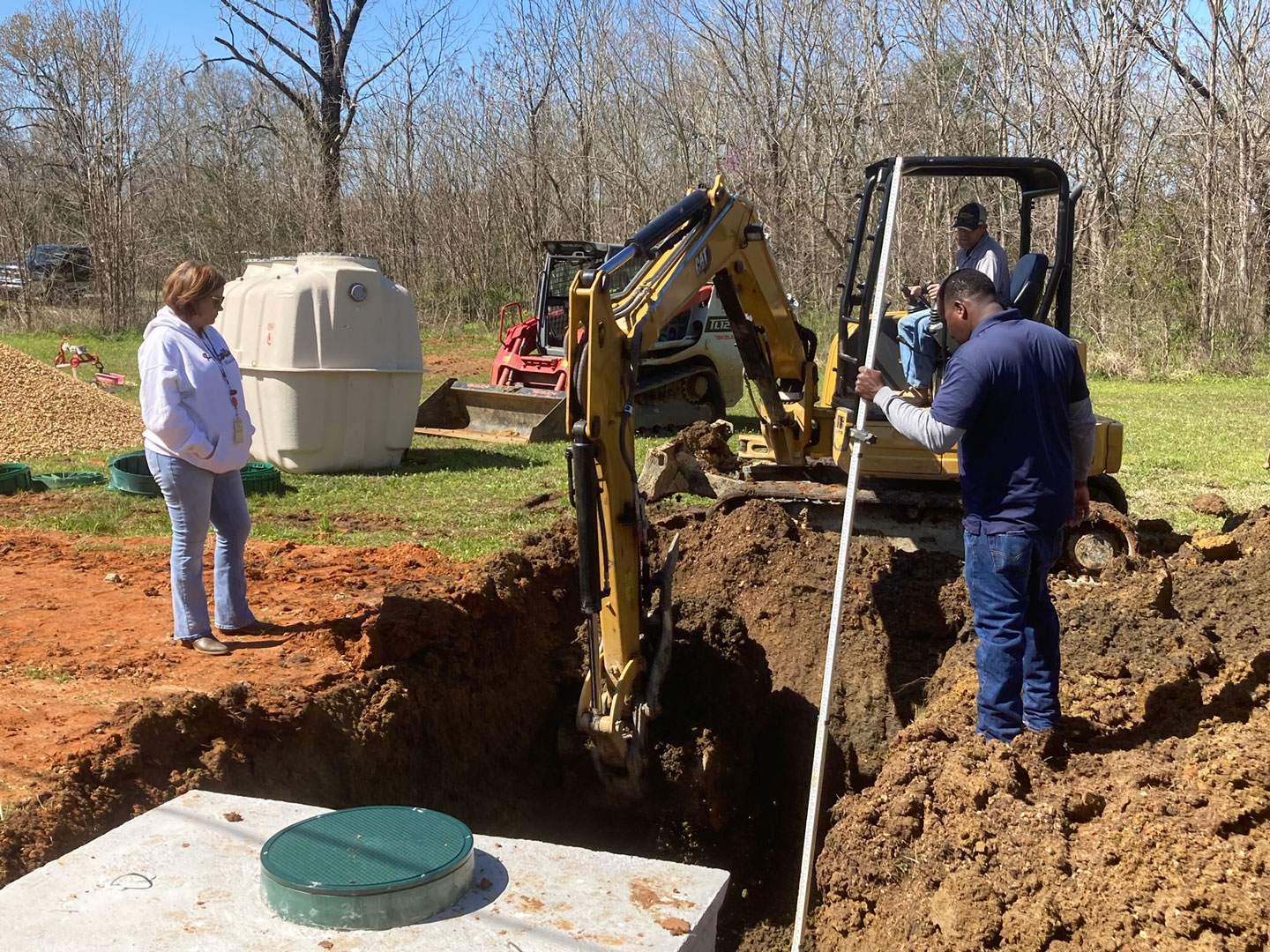
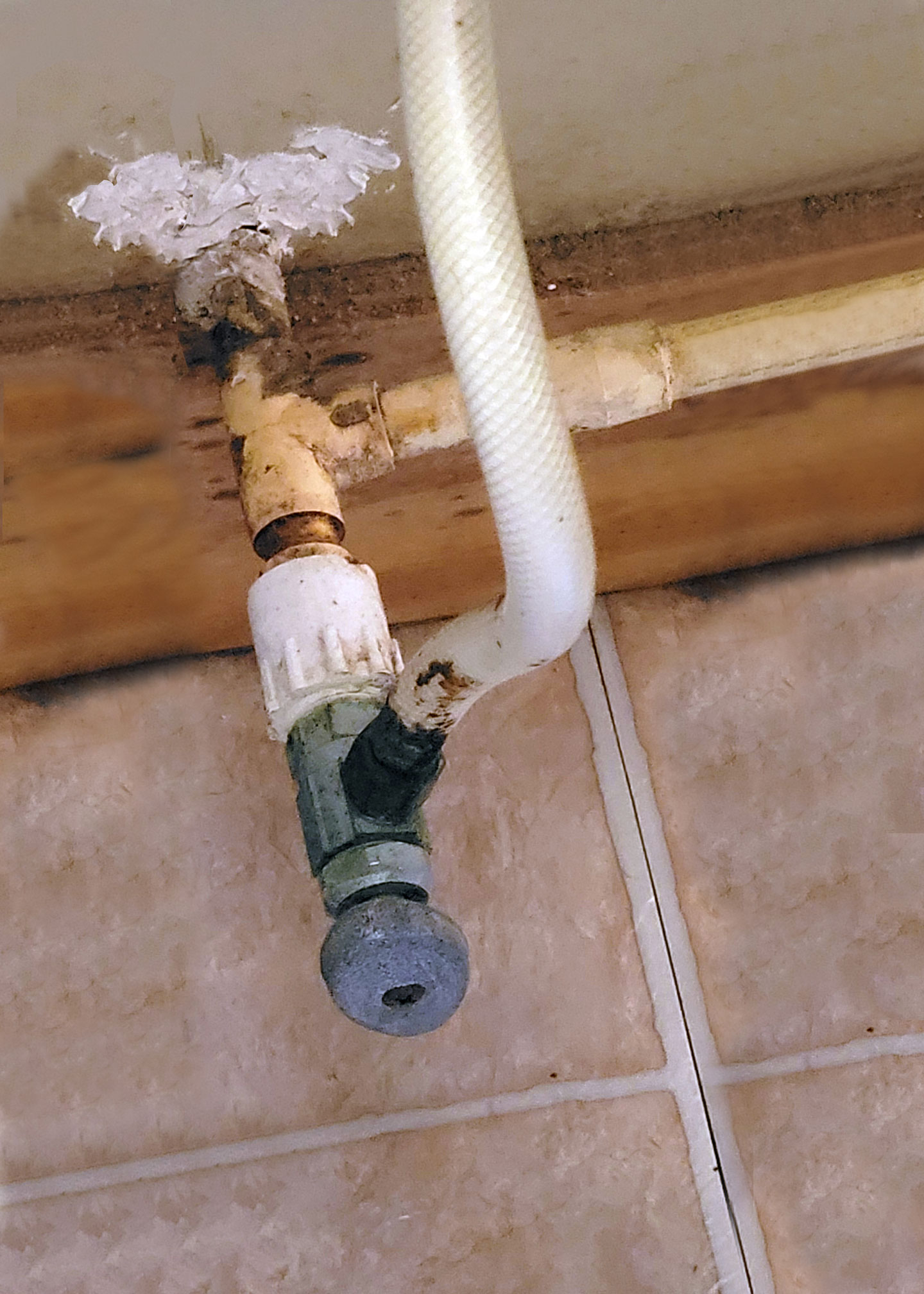
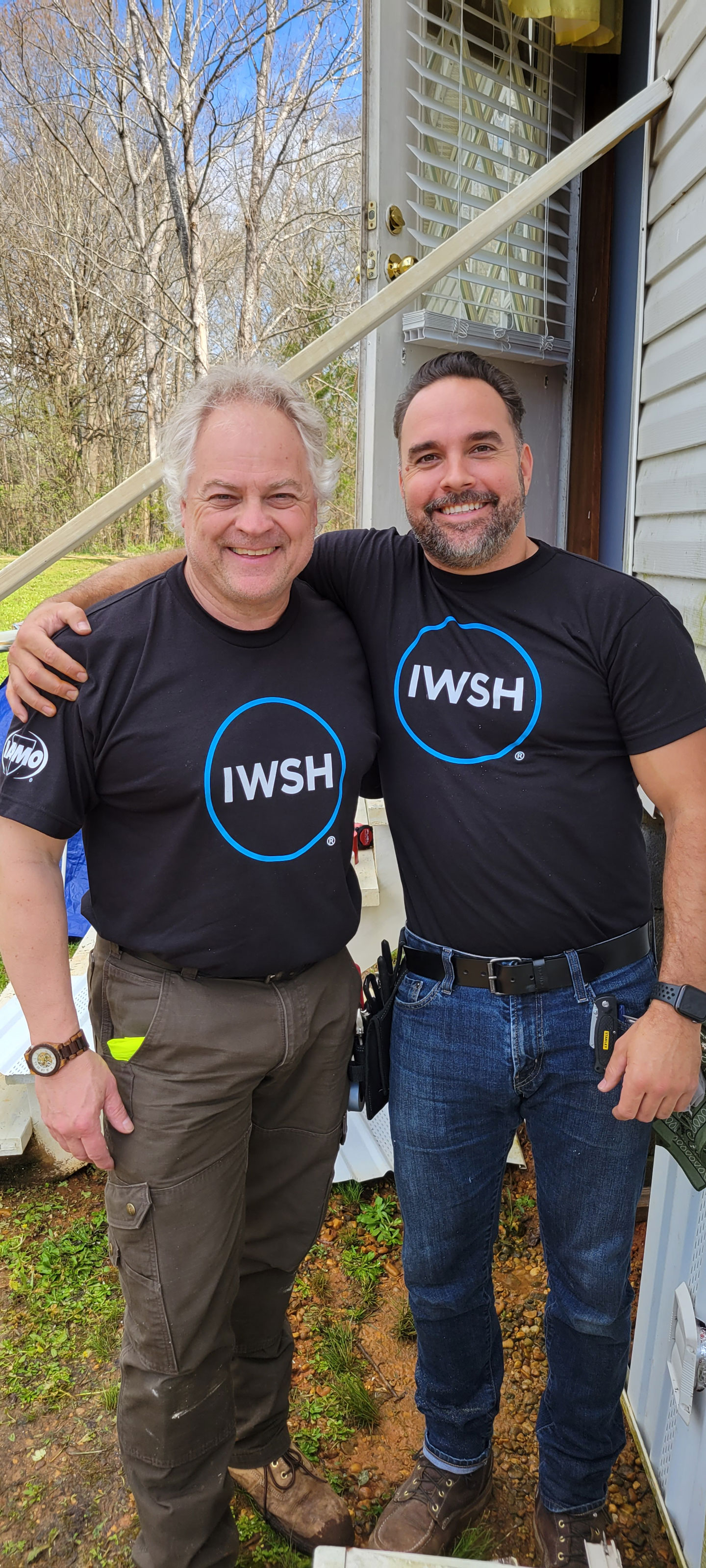
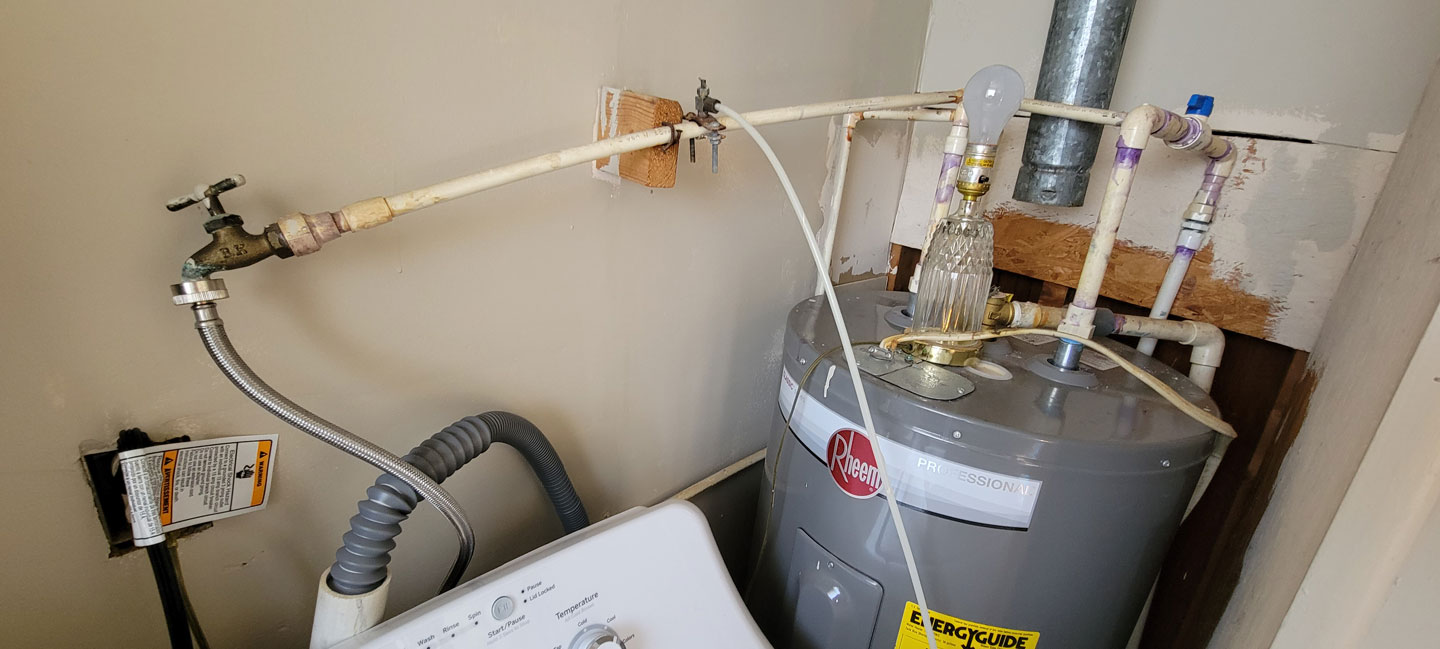

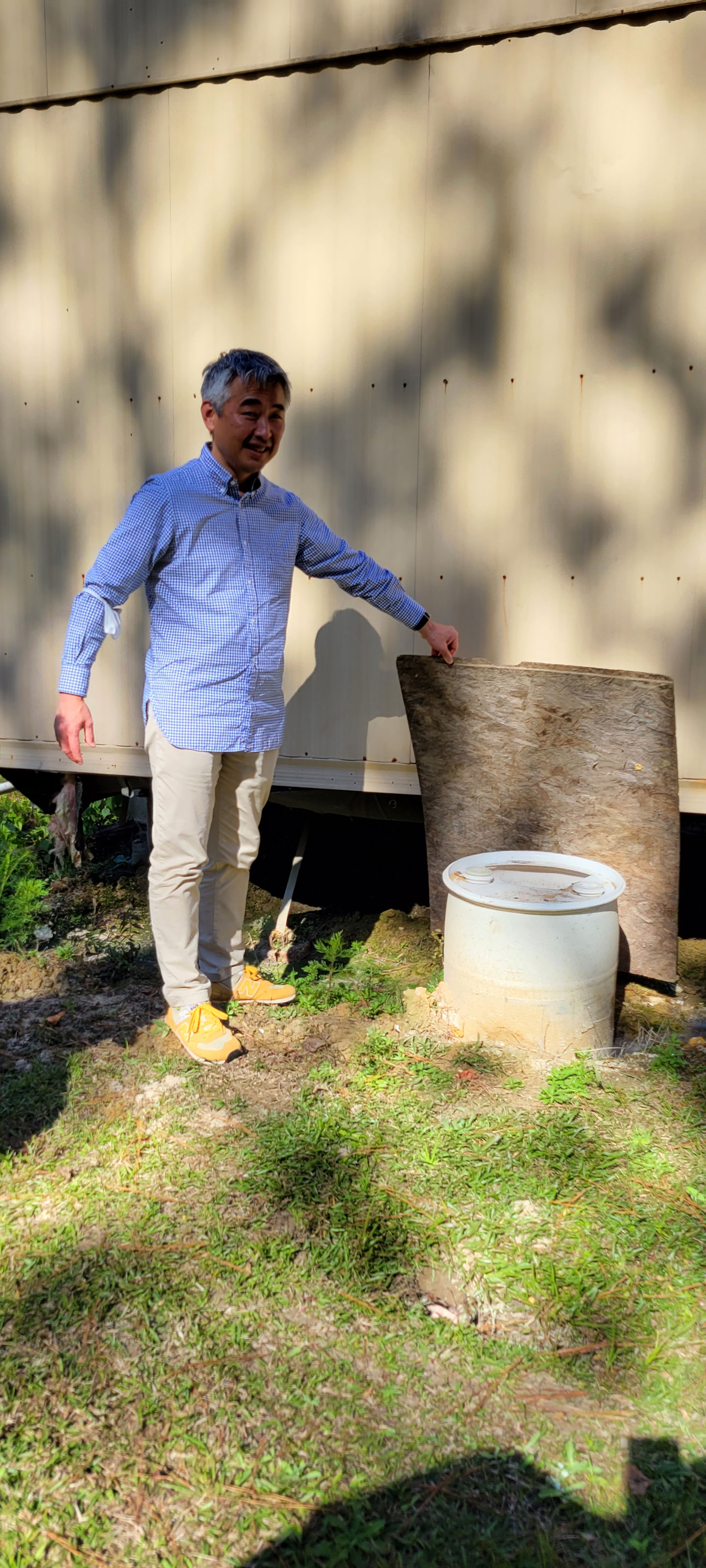
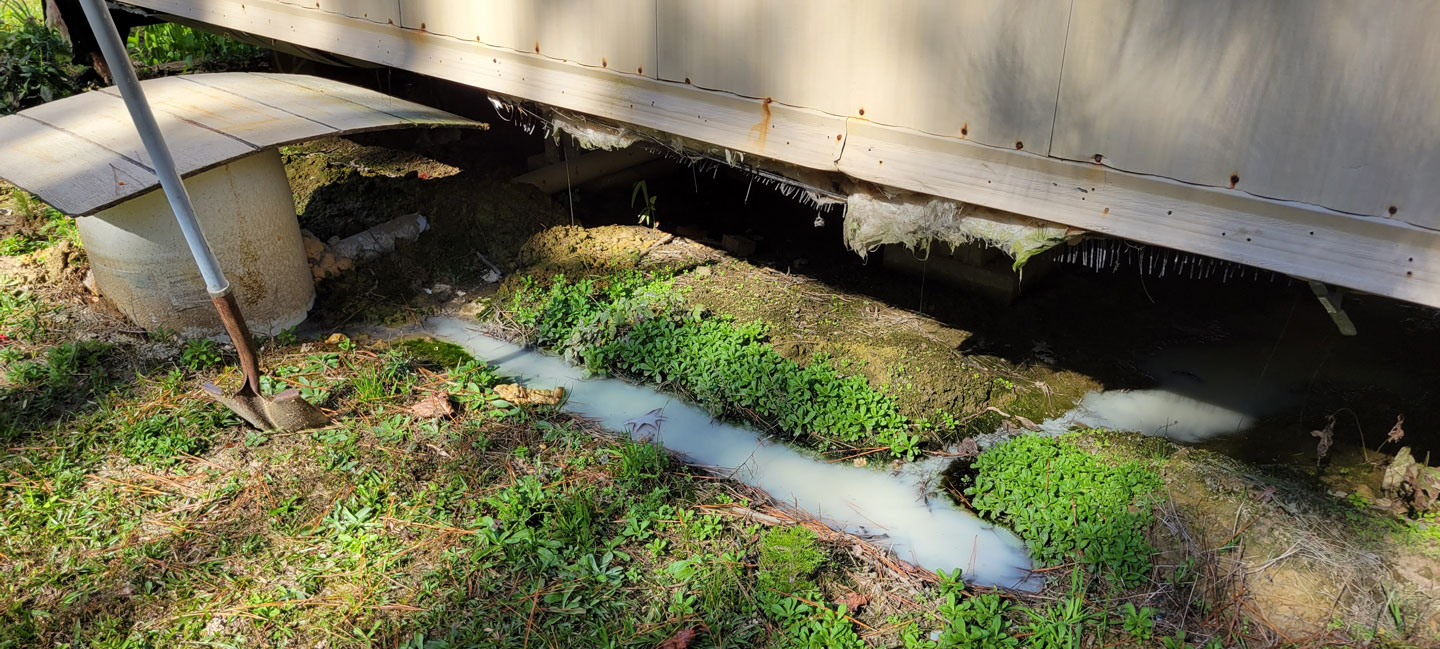
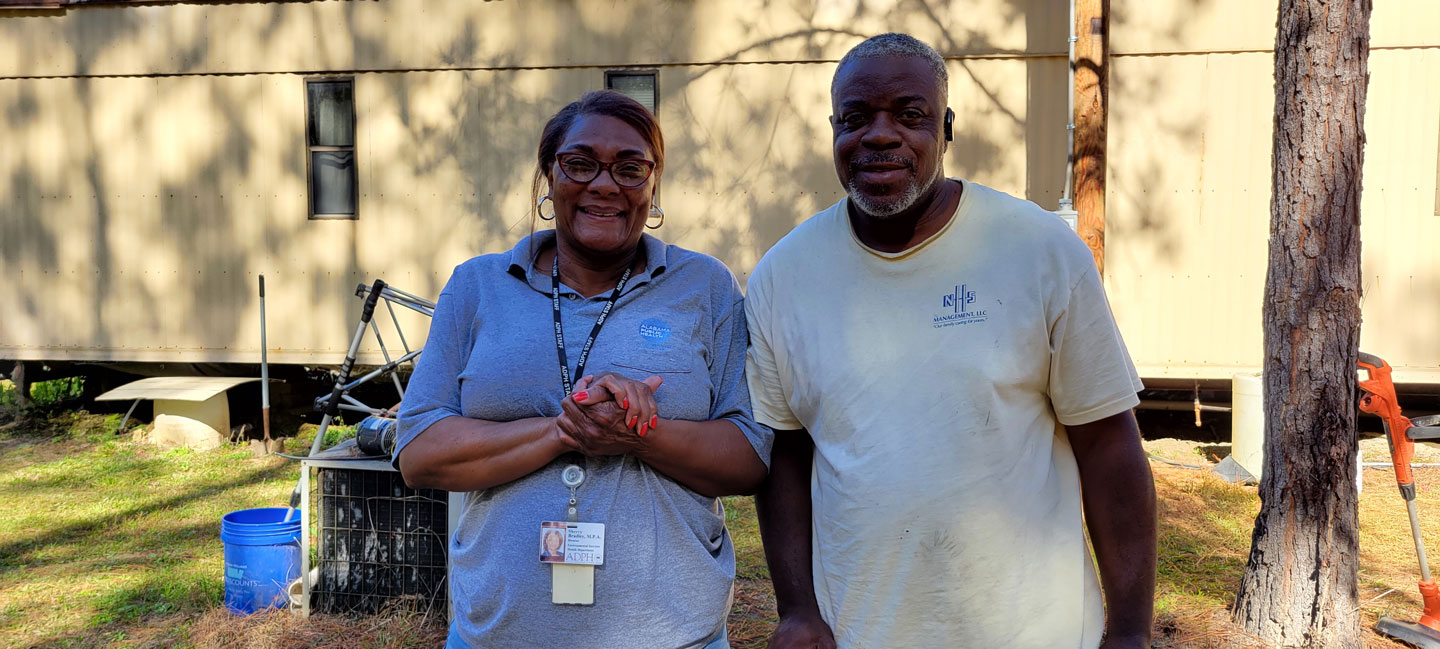
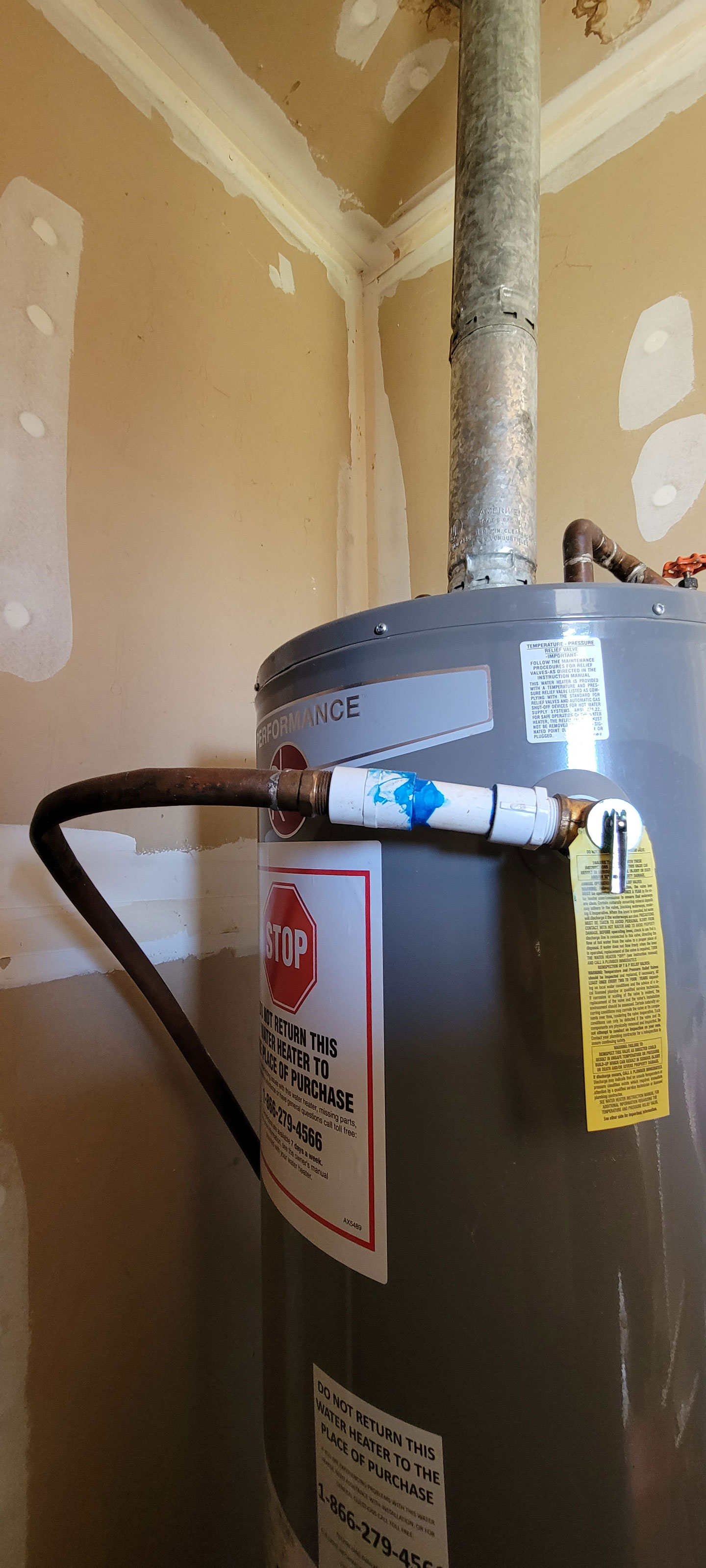
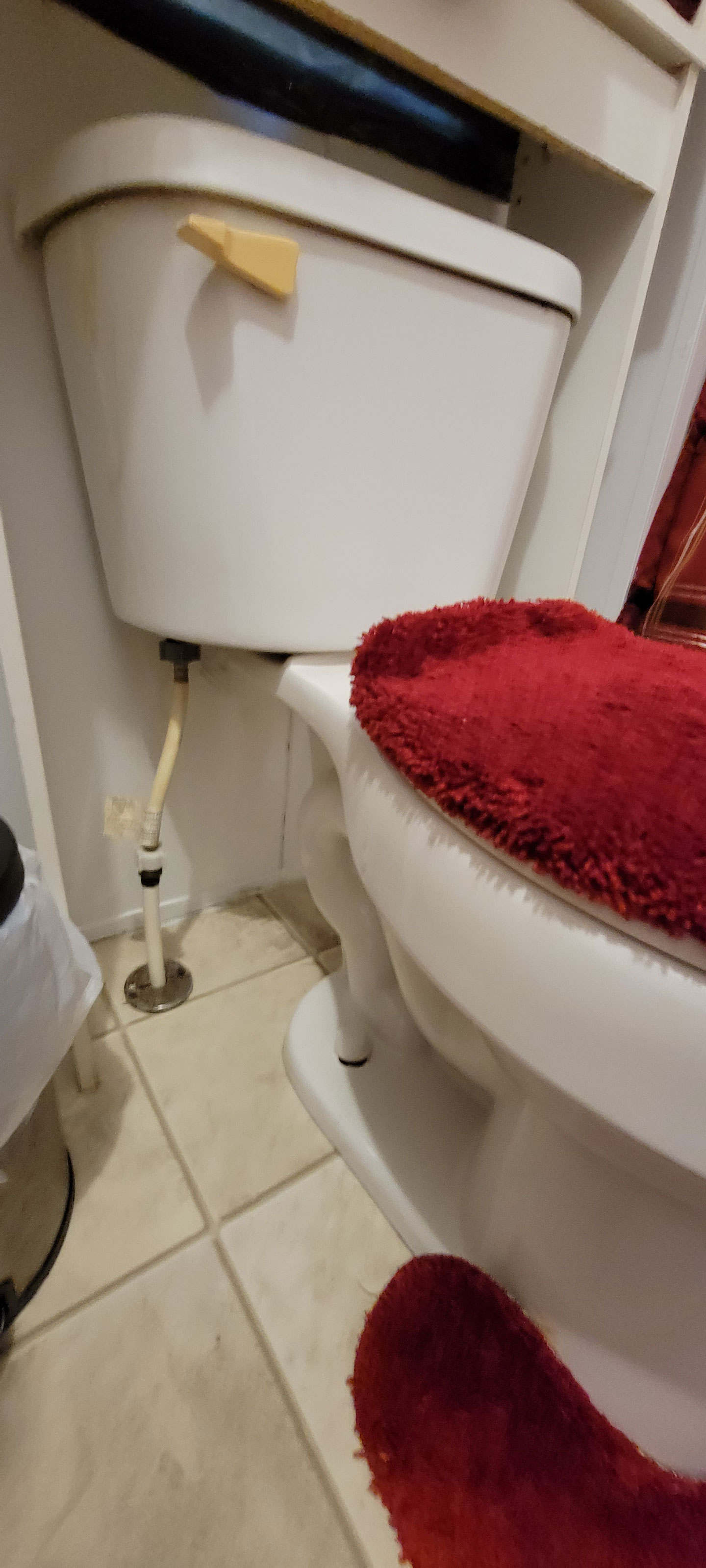
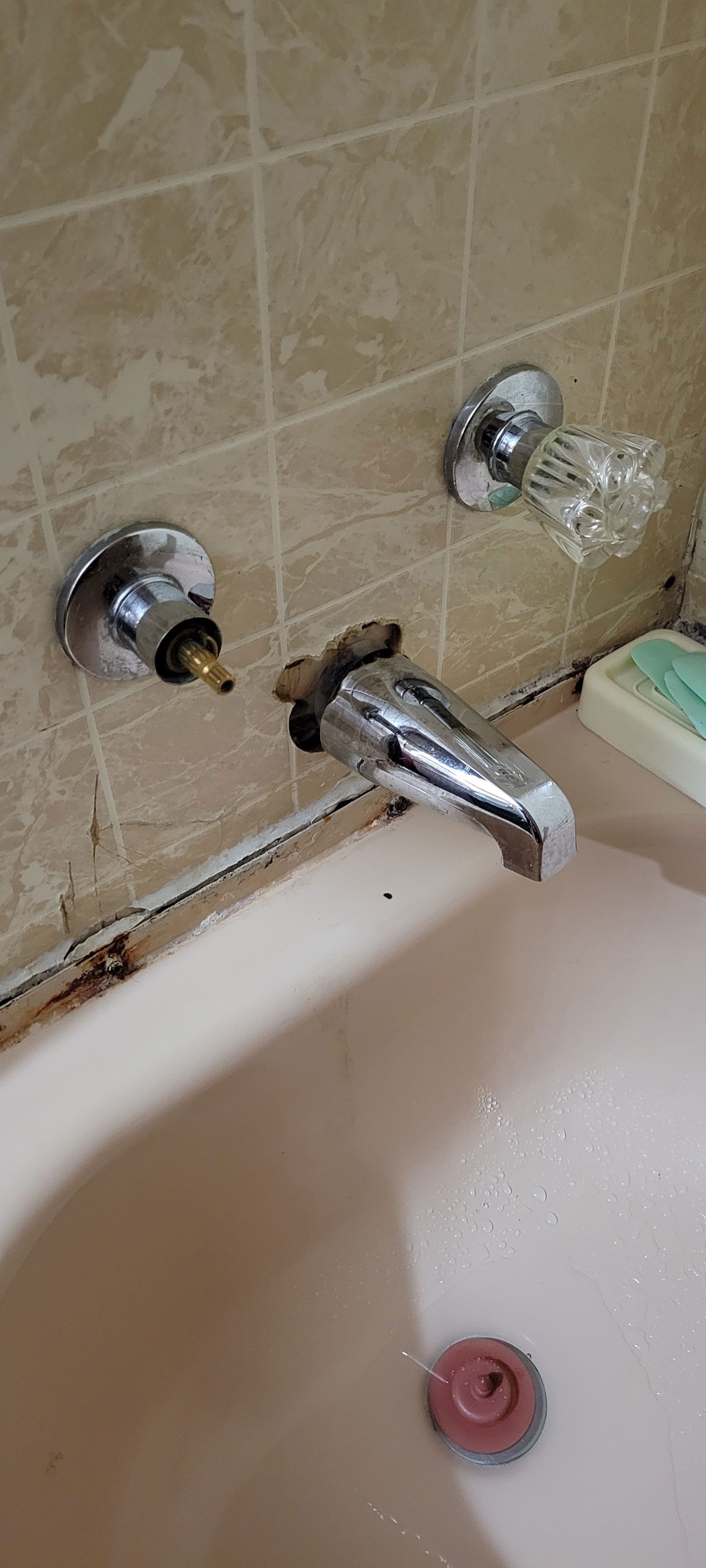
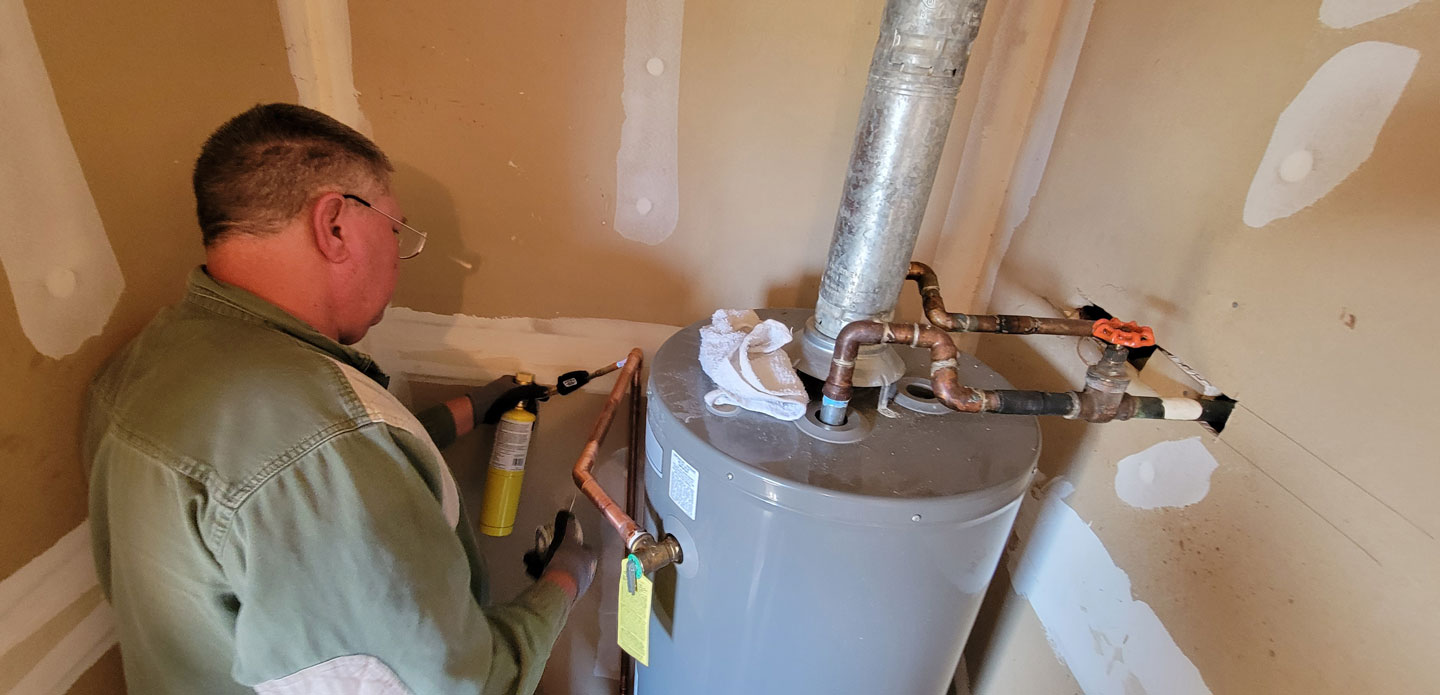

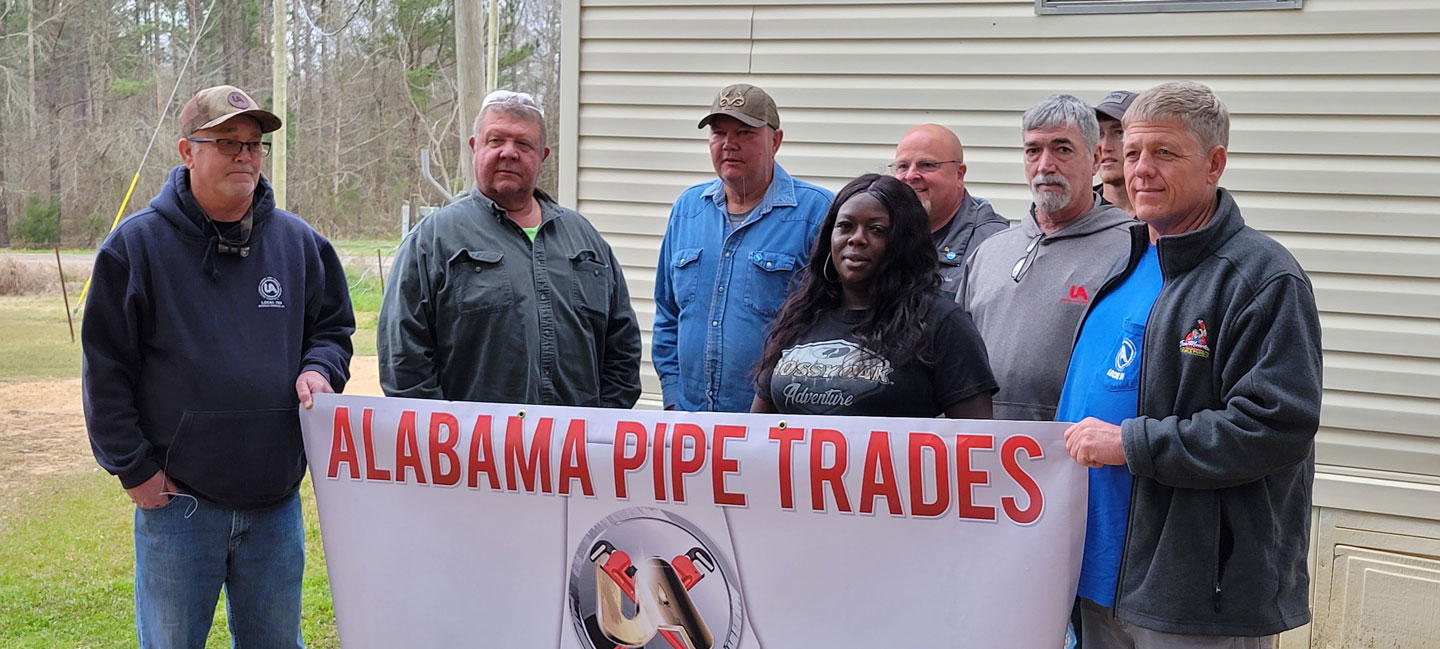

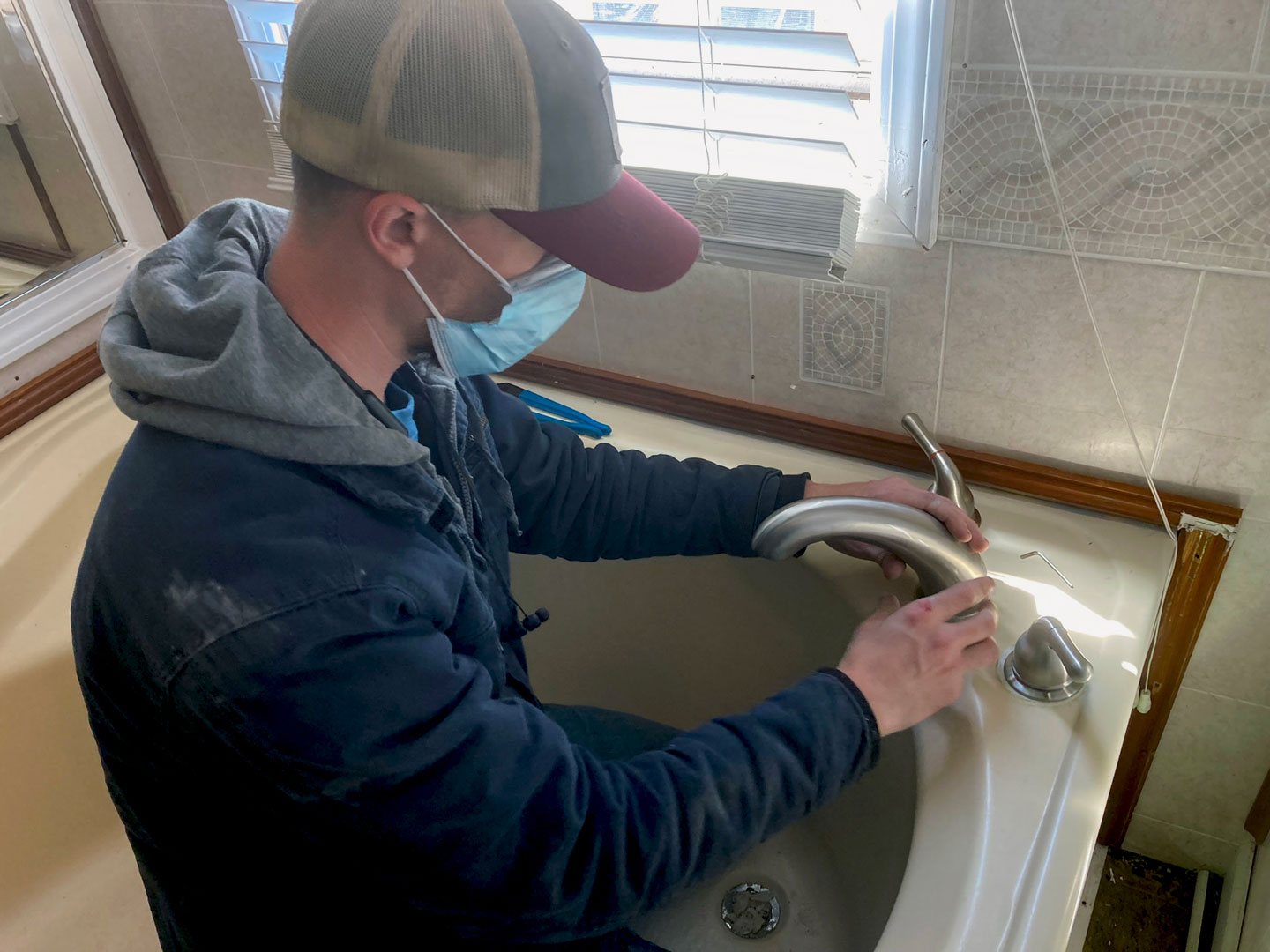
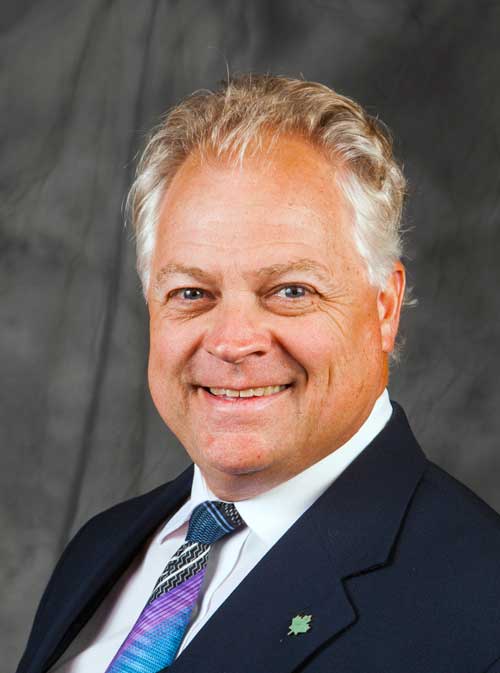
Jed Scheuermann
A Master Plumber, with over 40 years’ experience and has achieved a Bachelor (Education) degree and Instructor of Pipe Trades Certificate. As an educator, his passion is to effectively share trade knowledge, and he believes that access to safe drinking water and adequate sanitation are basic human rights that much of the world lacks.
In 1989 Scheuermann participated in his first humanitarian mission at an orphanage in Brazil. His experience there literally changed his life, setting his feet on a path that prompted numerous humanitarian and first responder to natural disasters trips. He has now traveled to nearly 40 countries in the process and is an avid writer & photographer having published many articles.
Last modified: August 31, 2022
